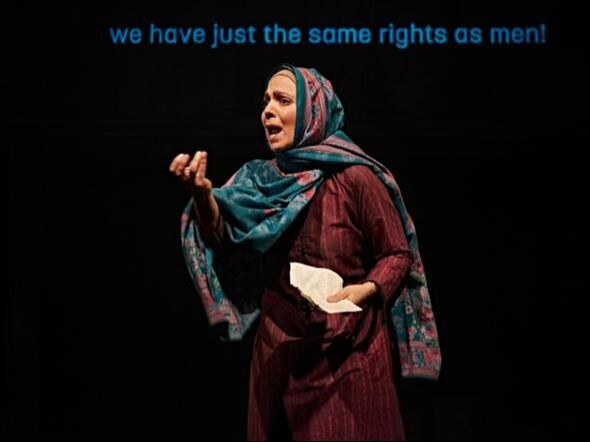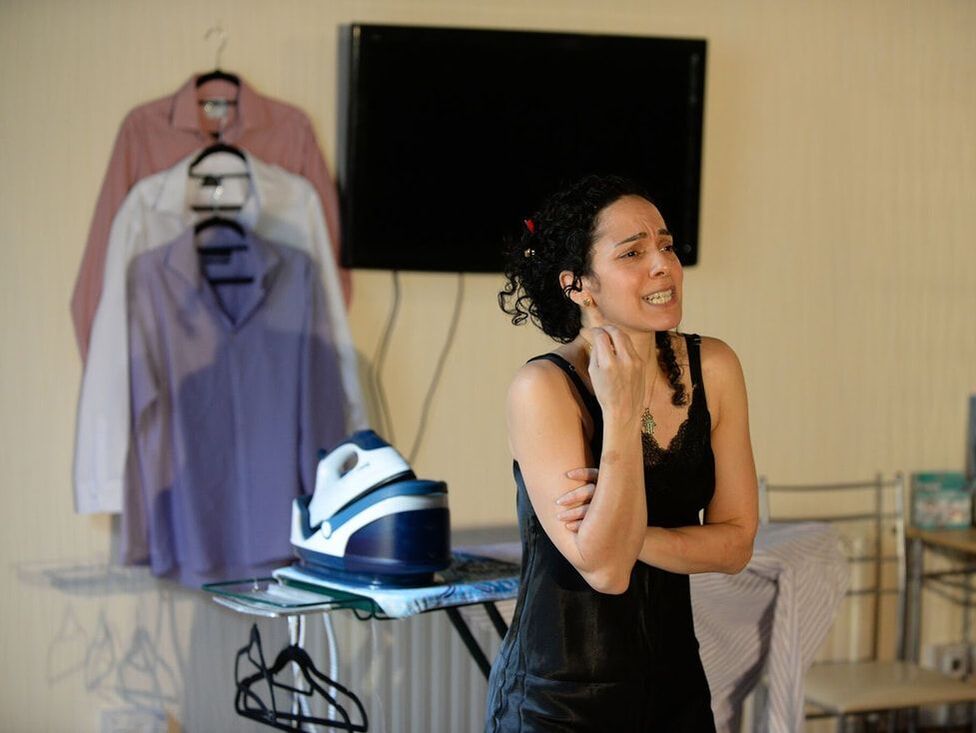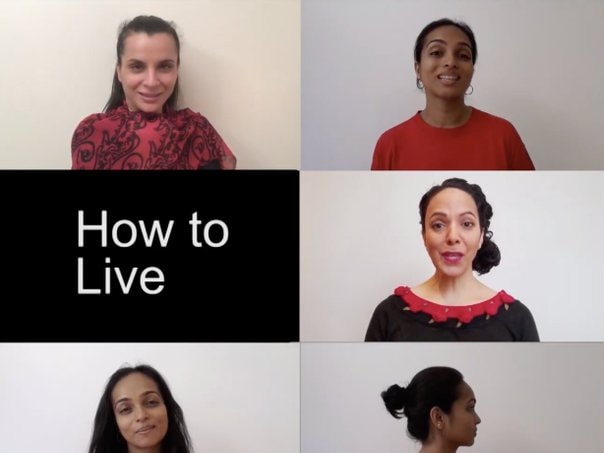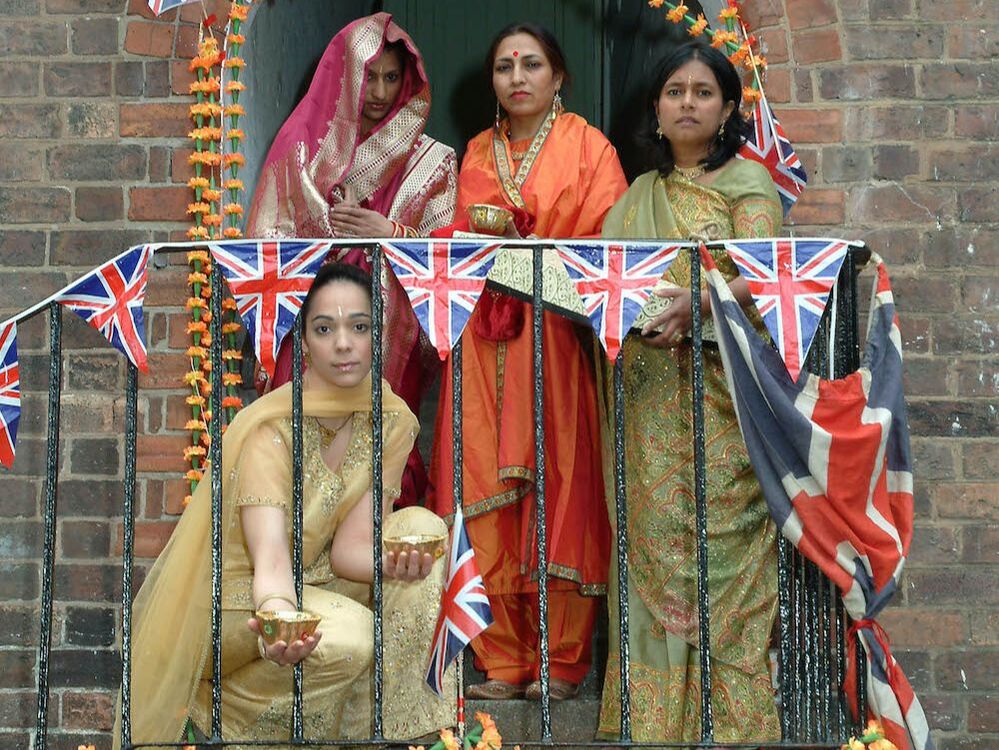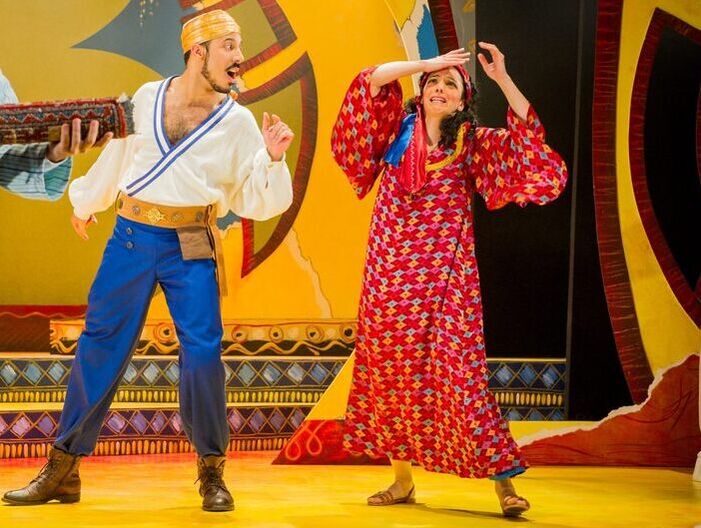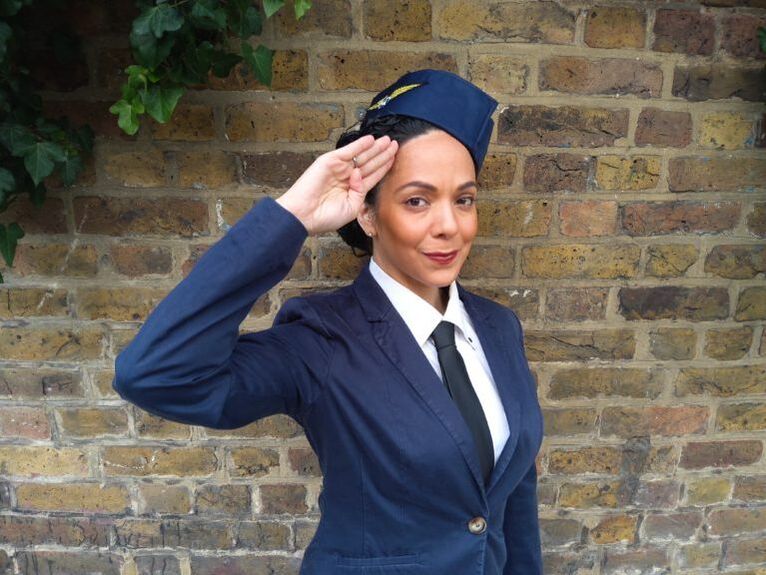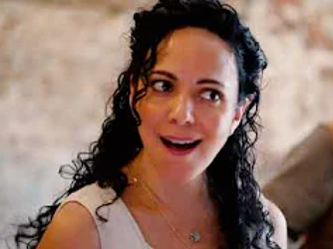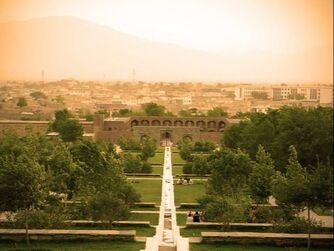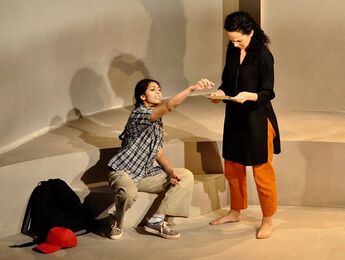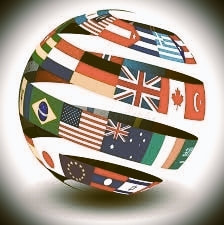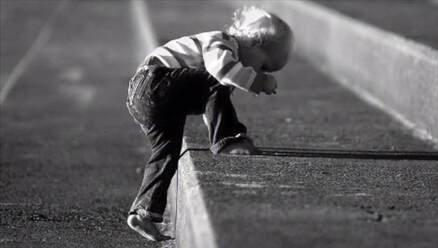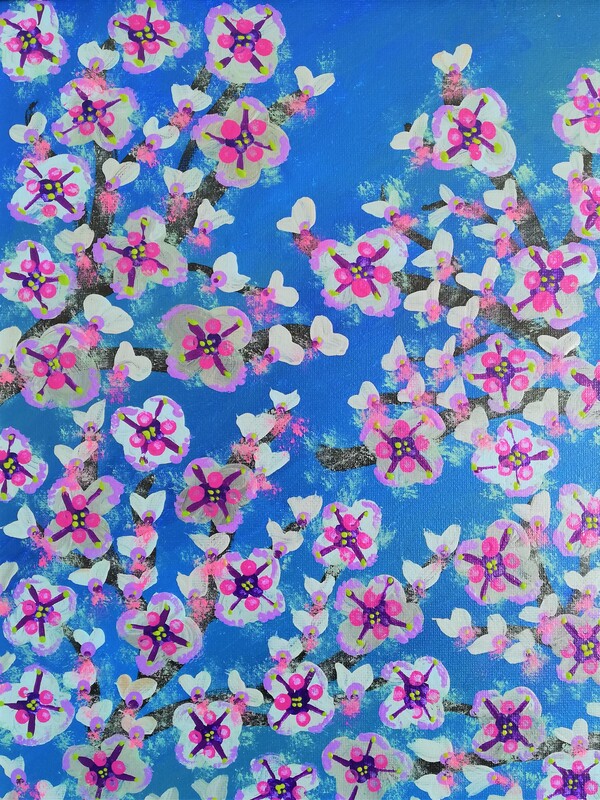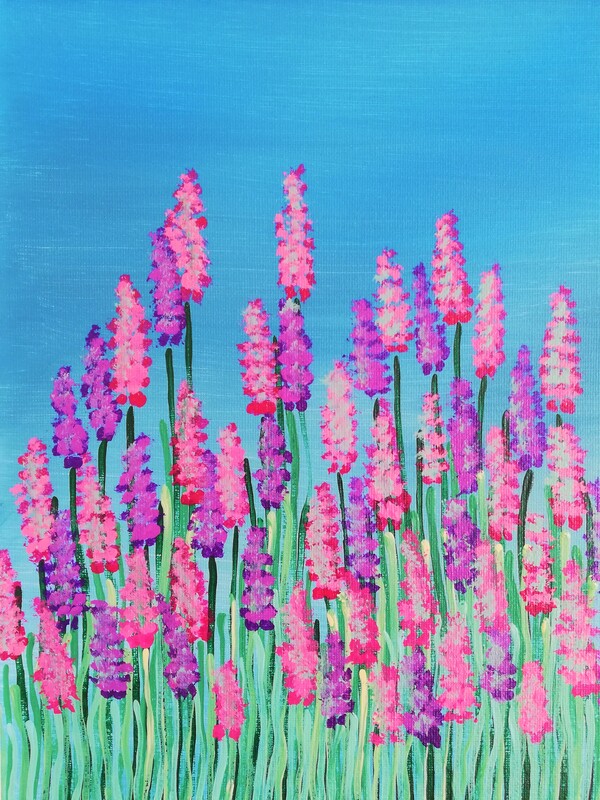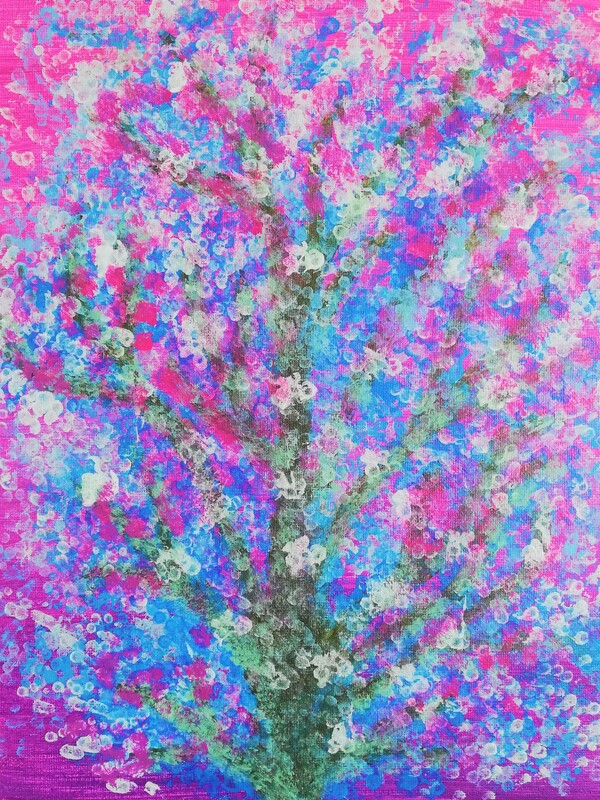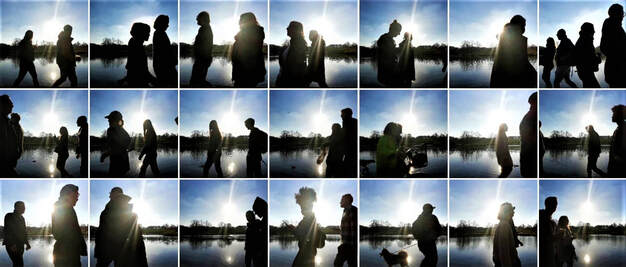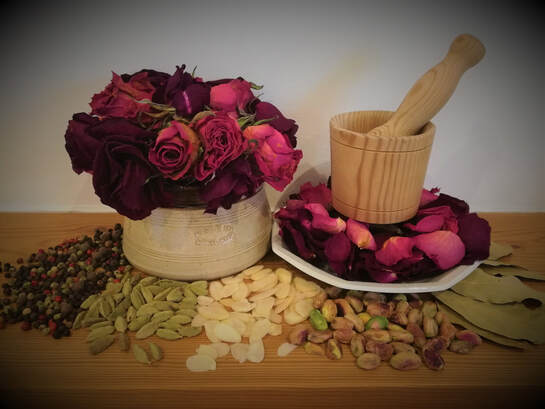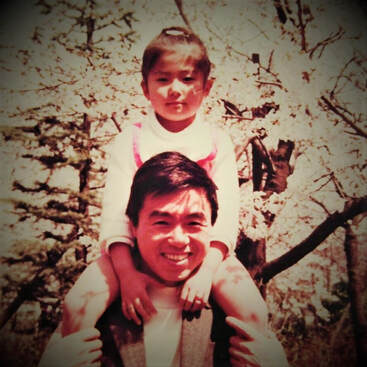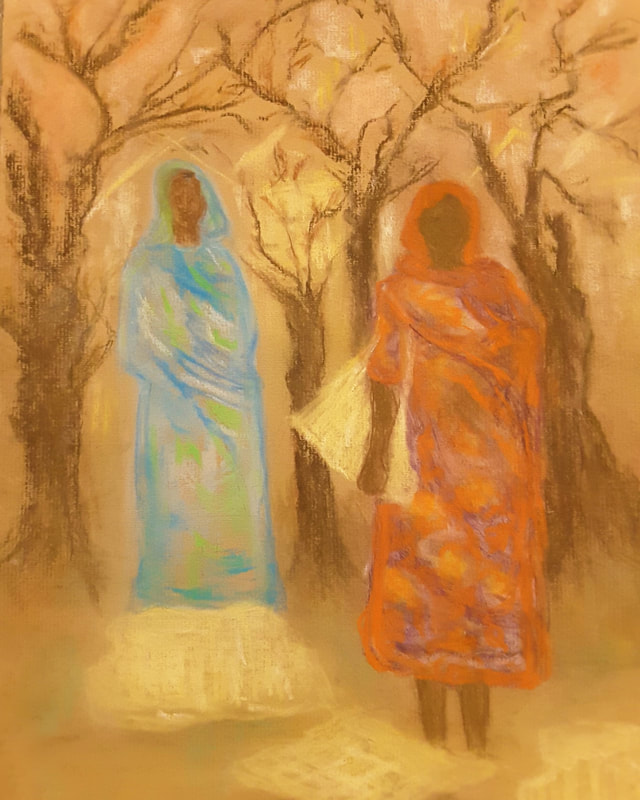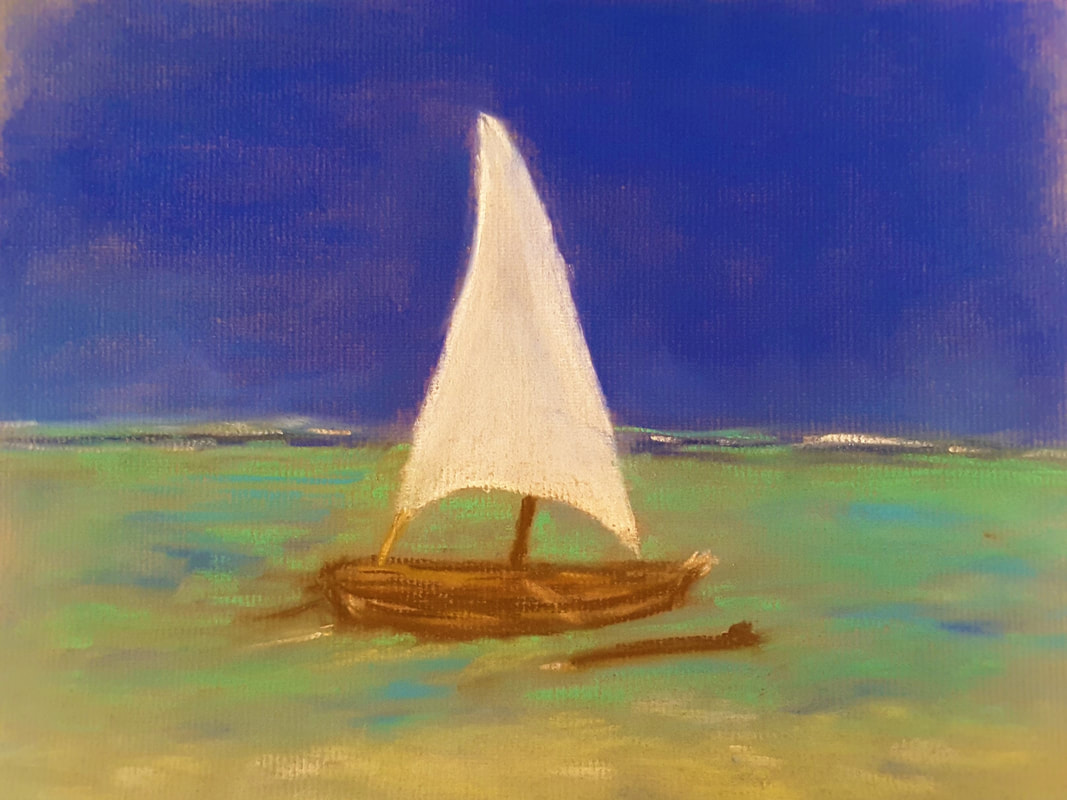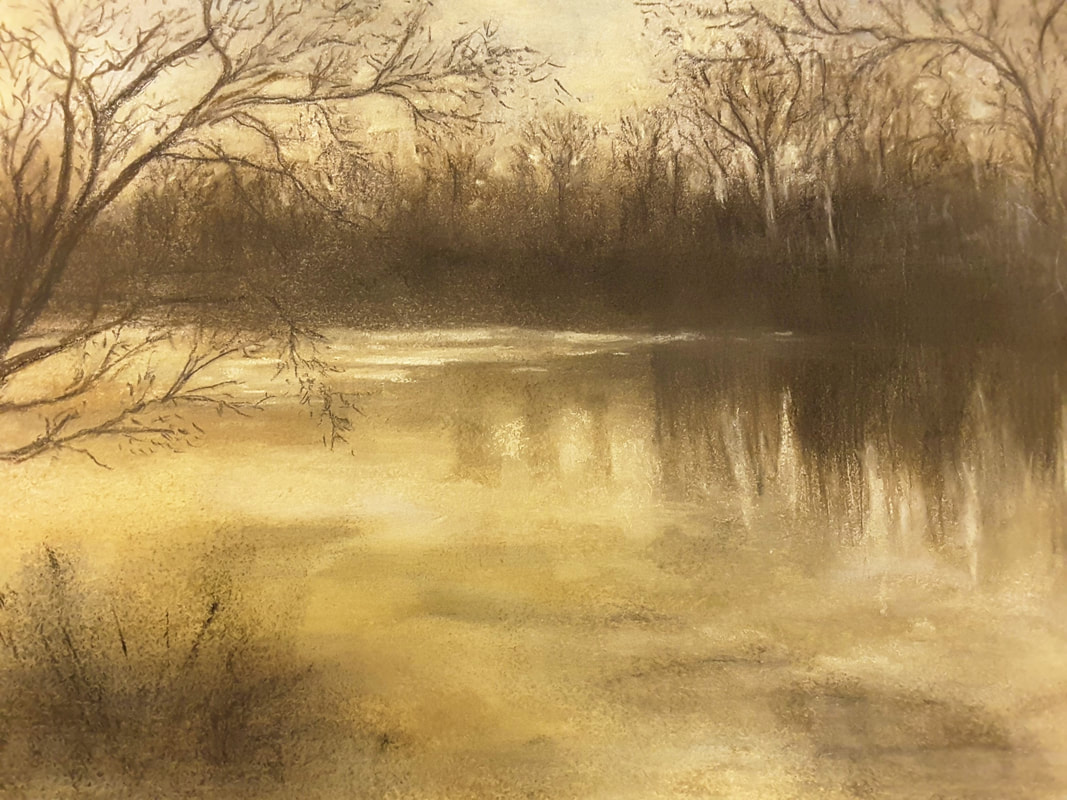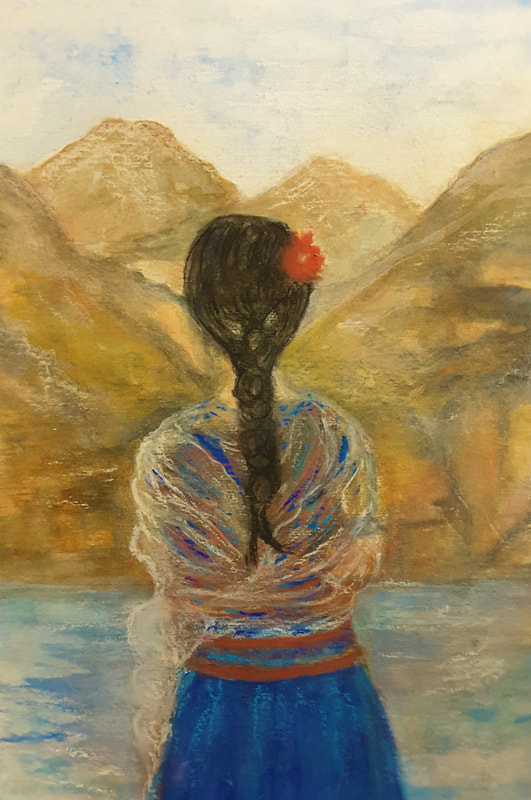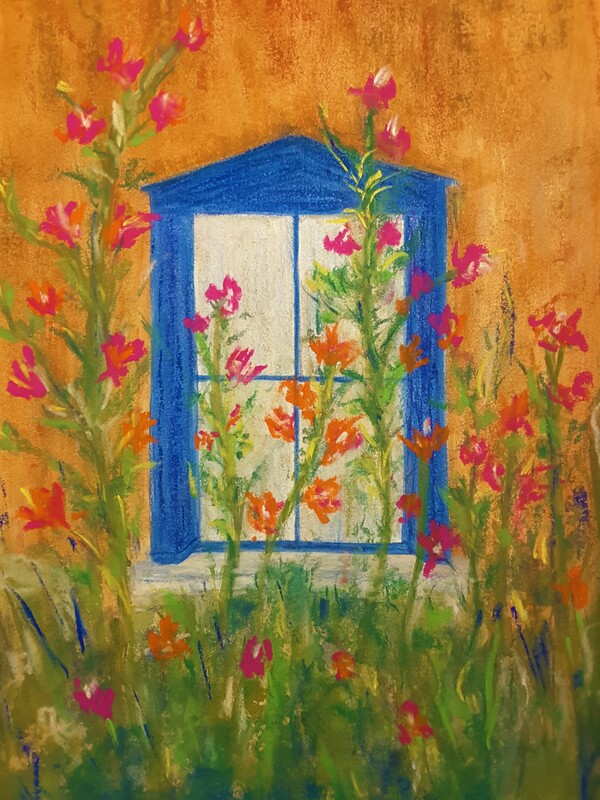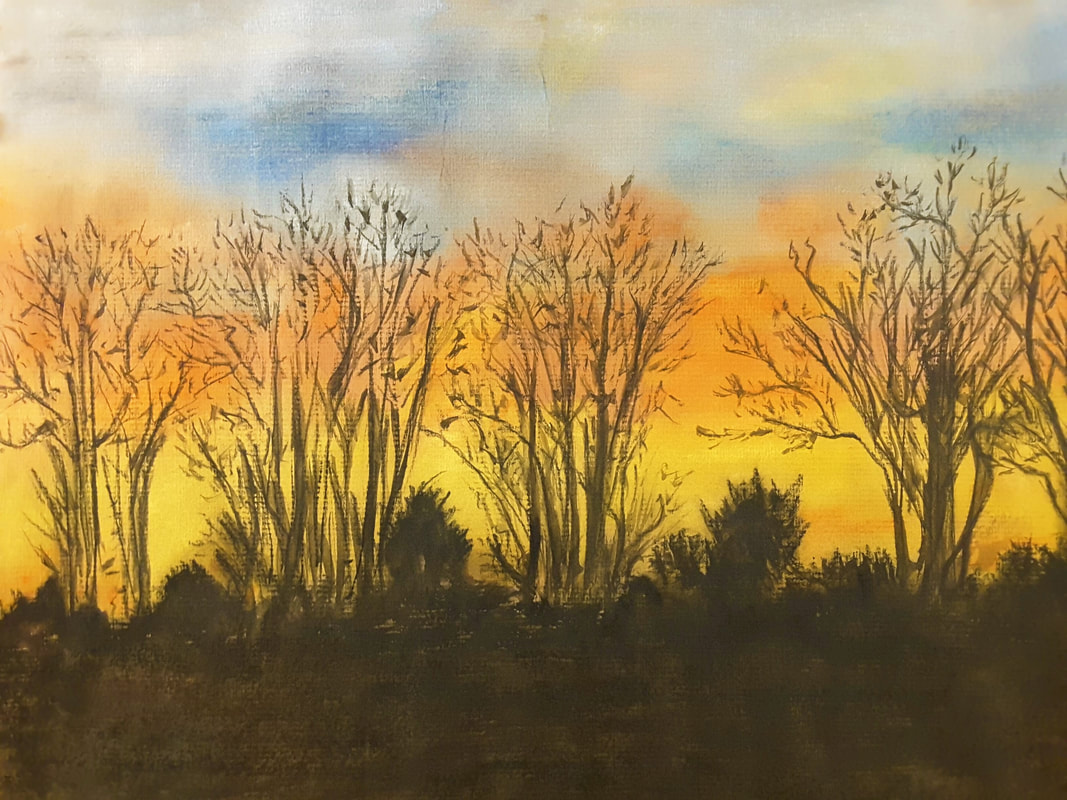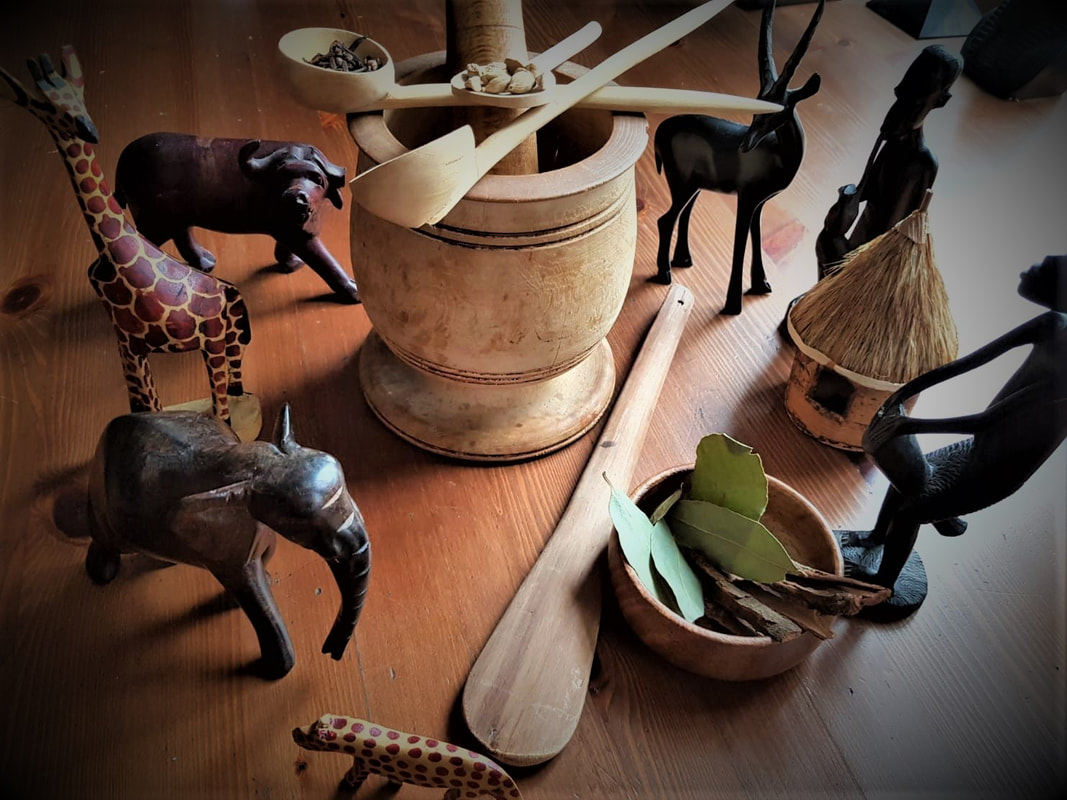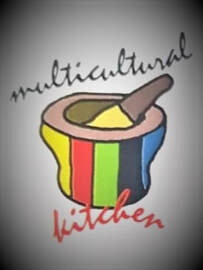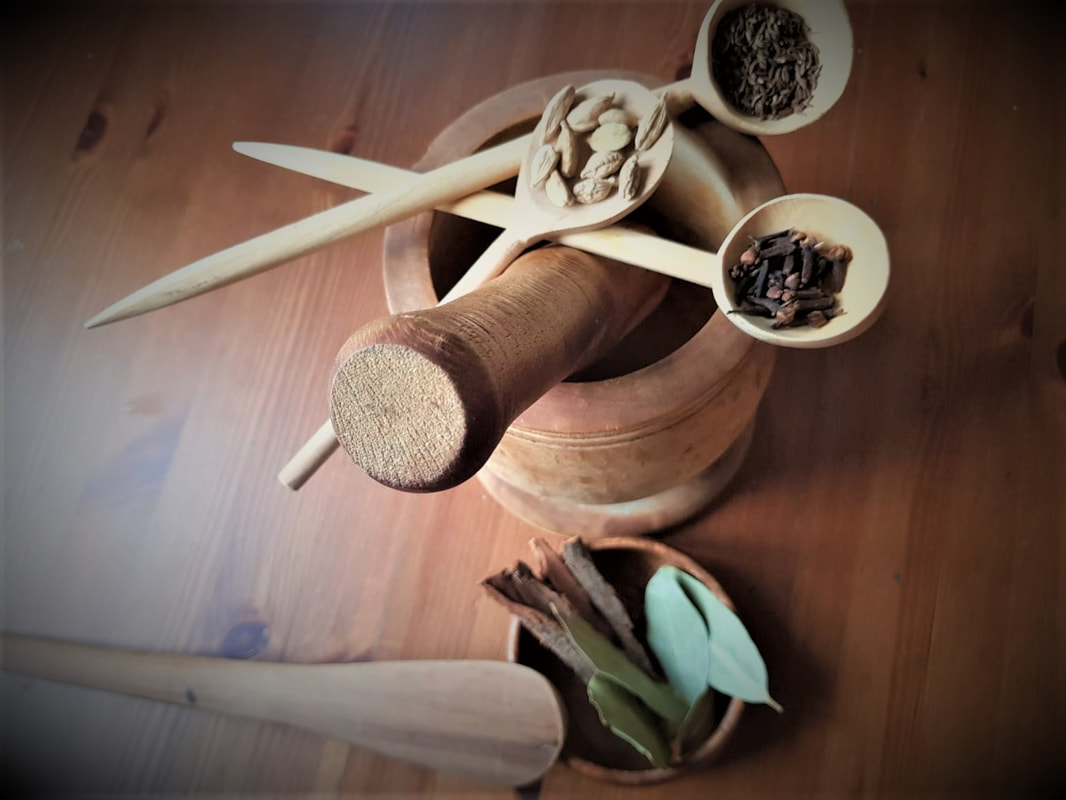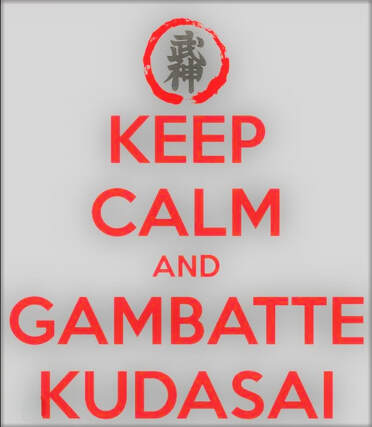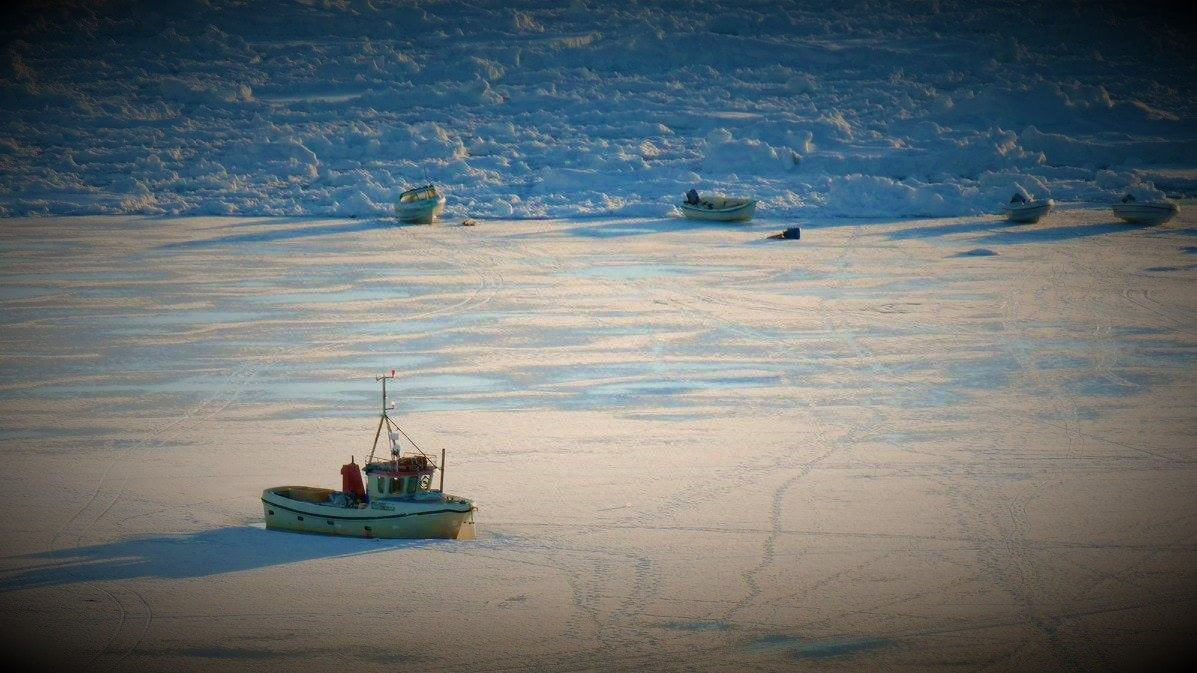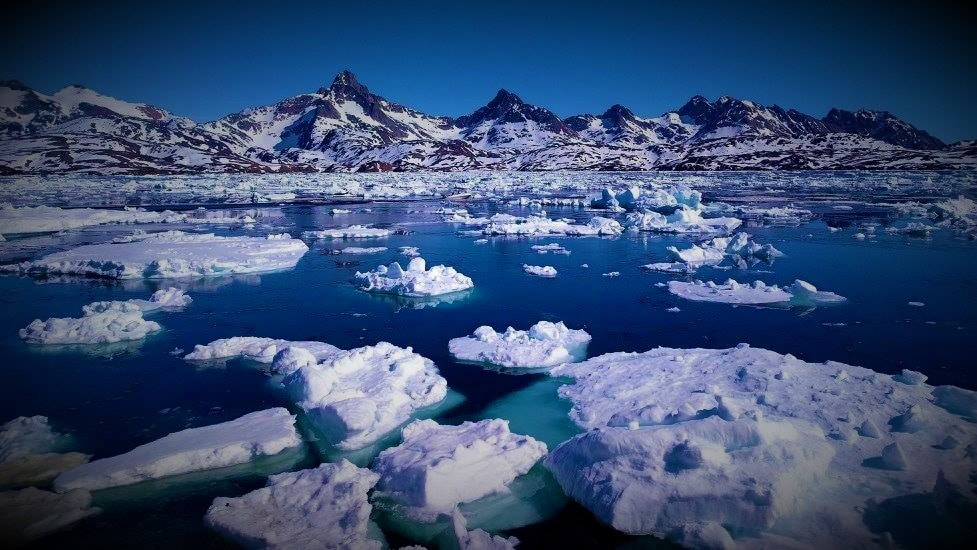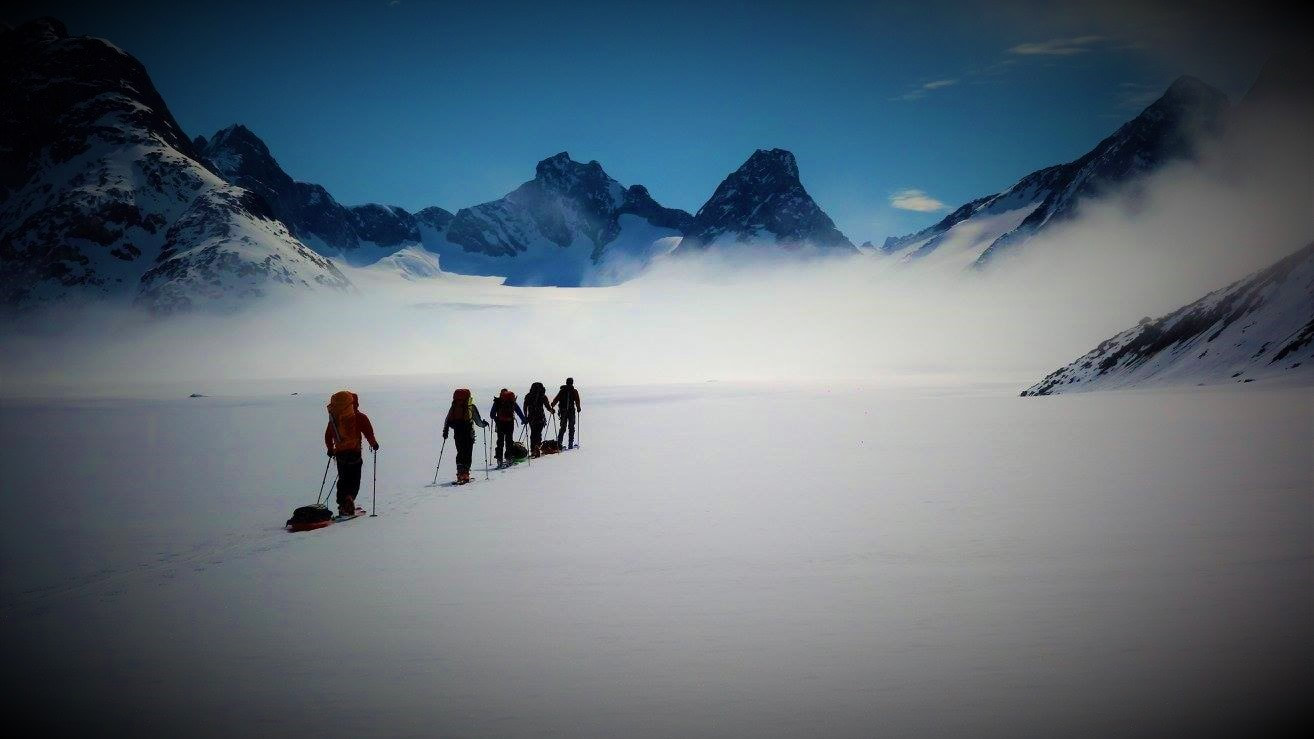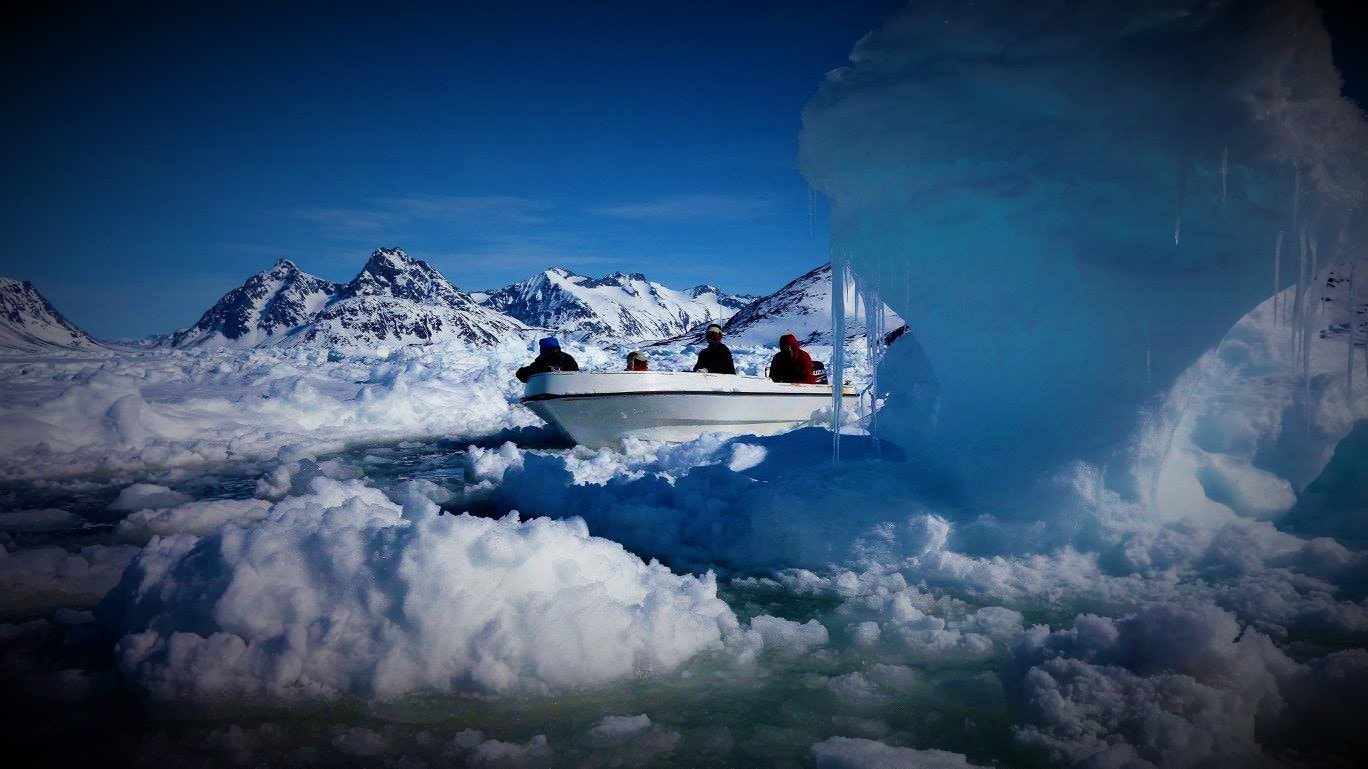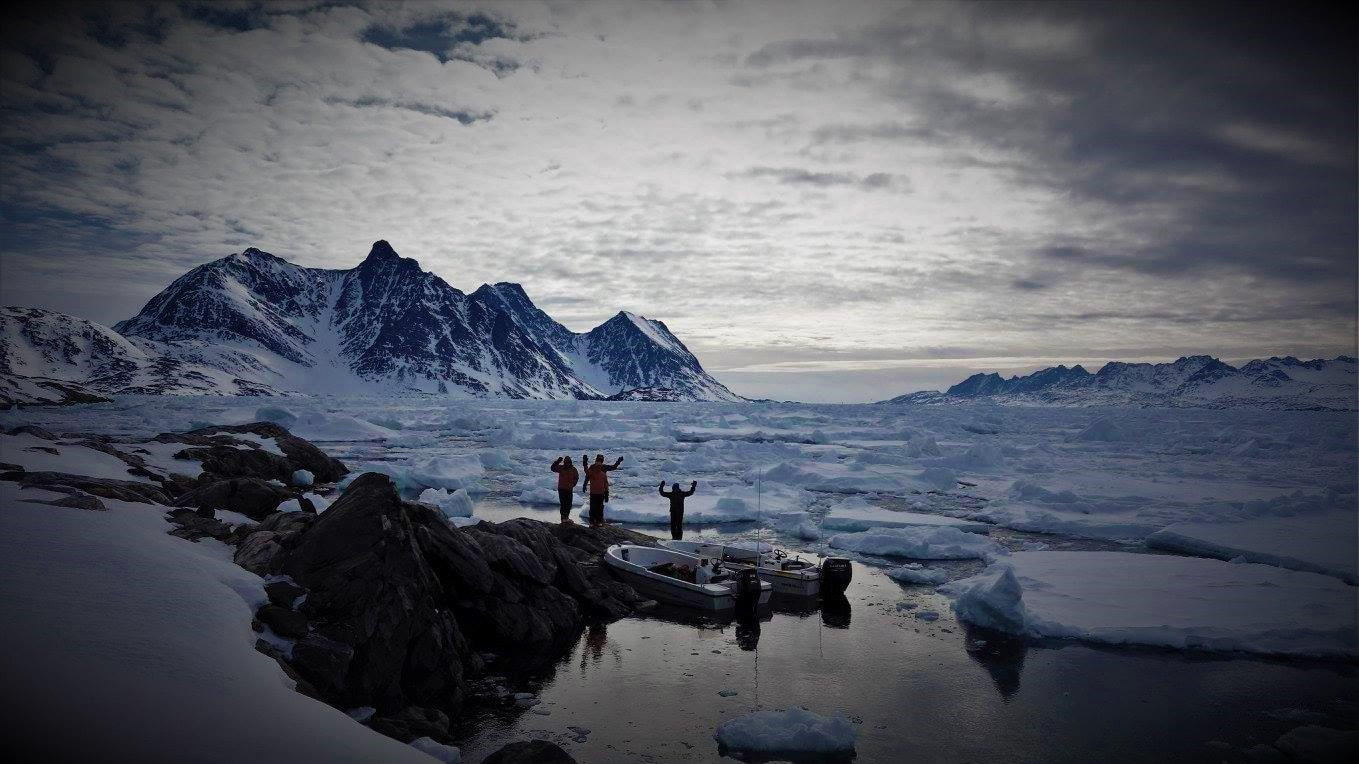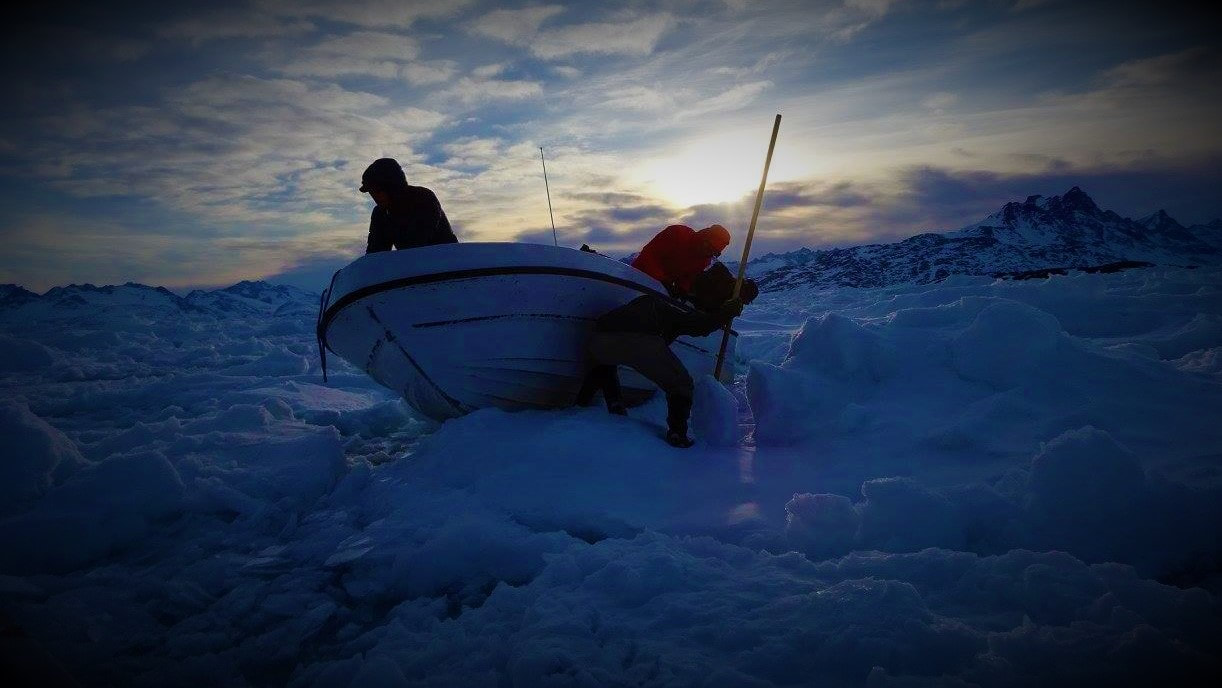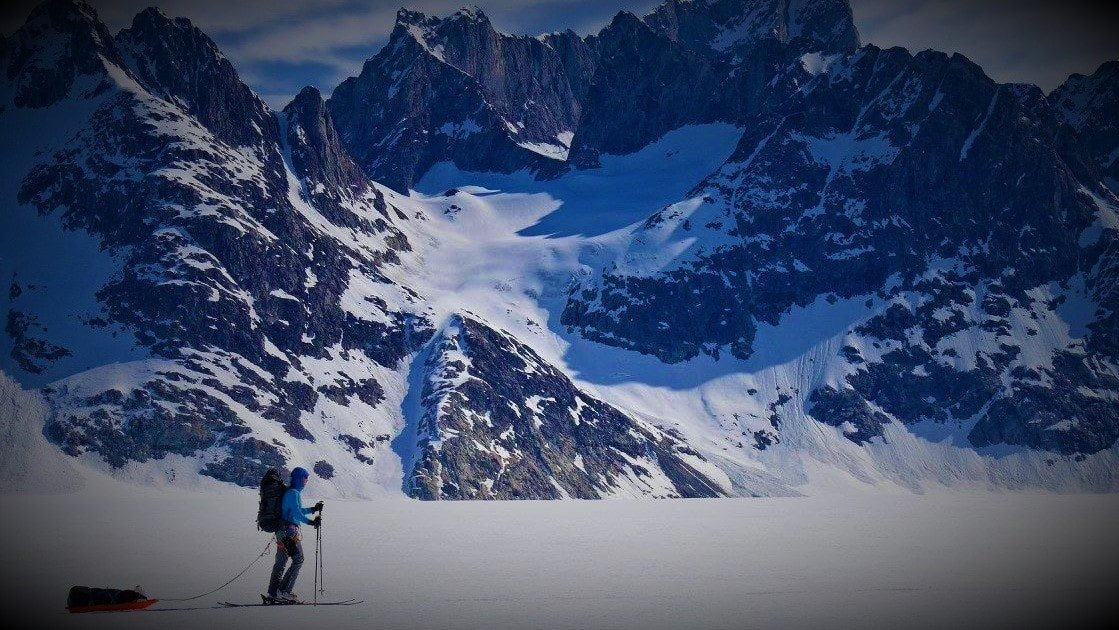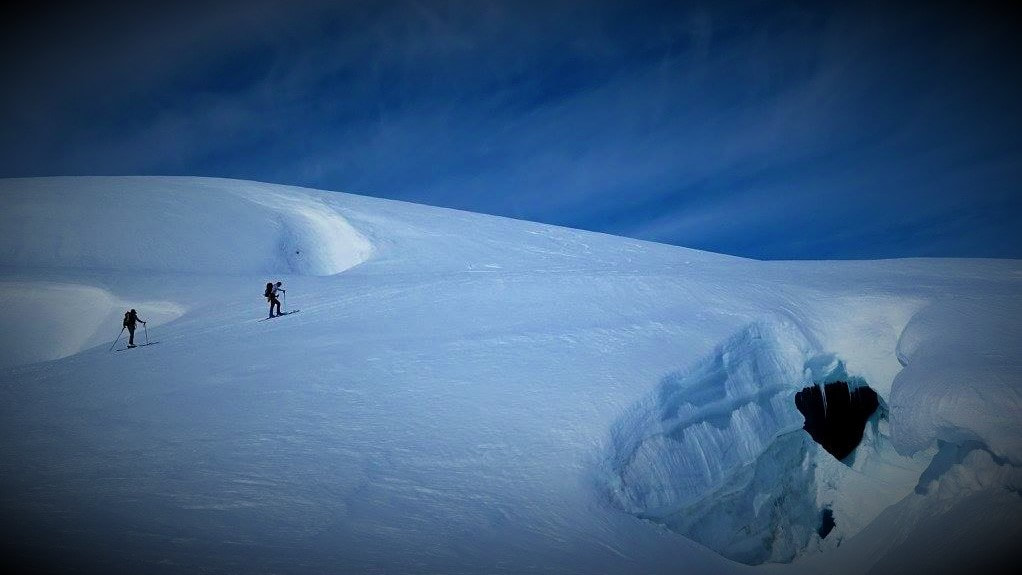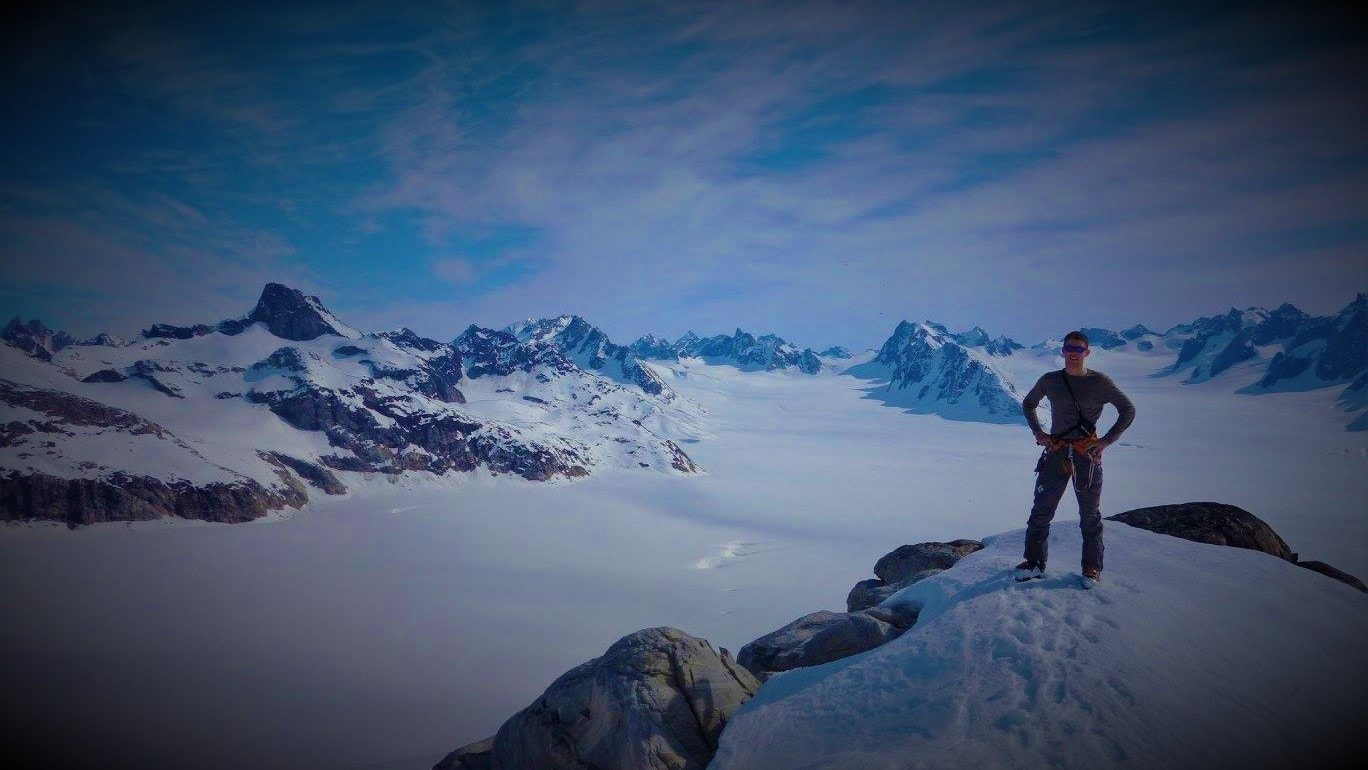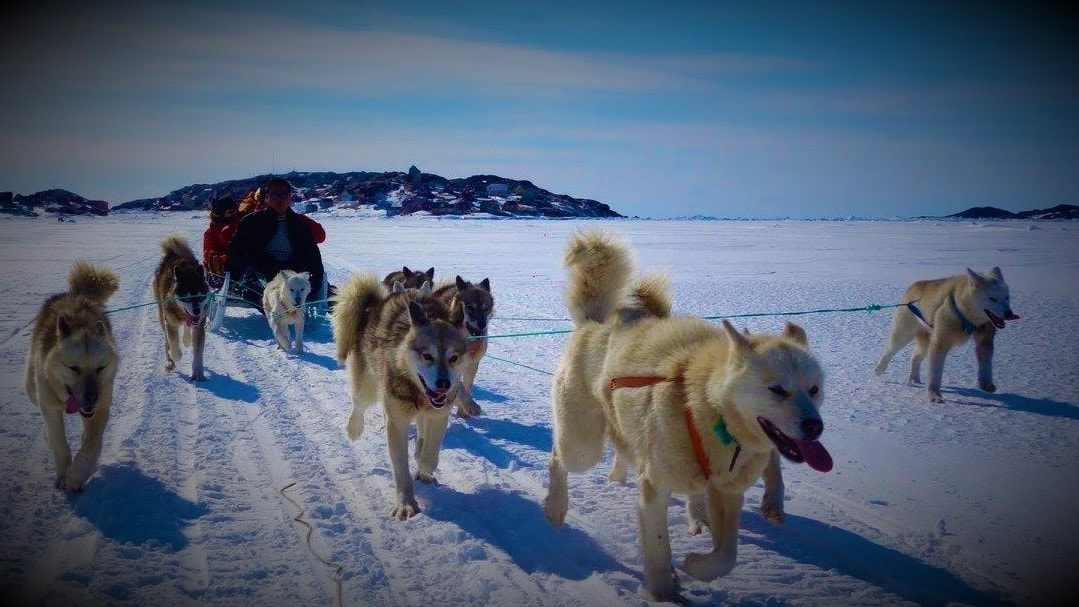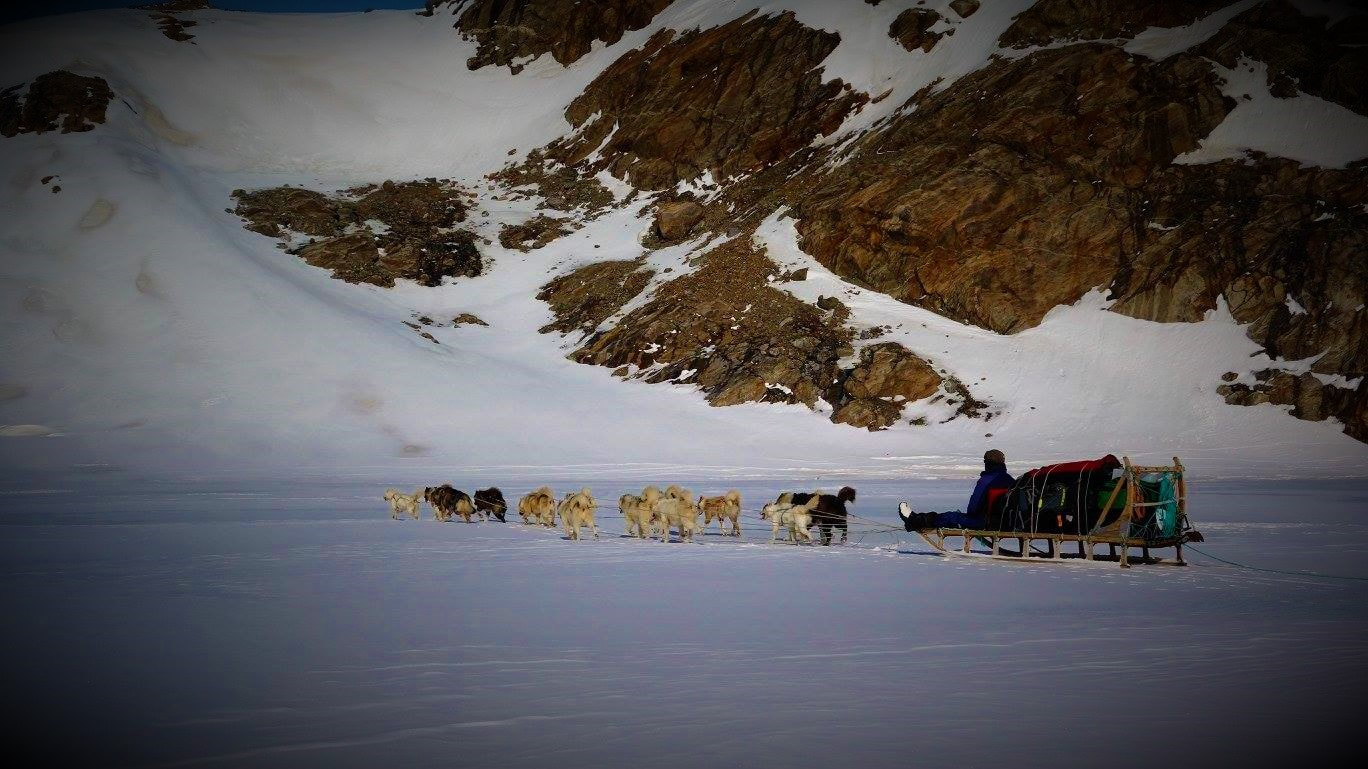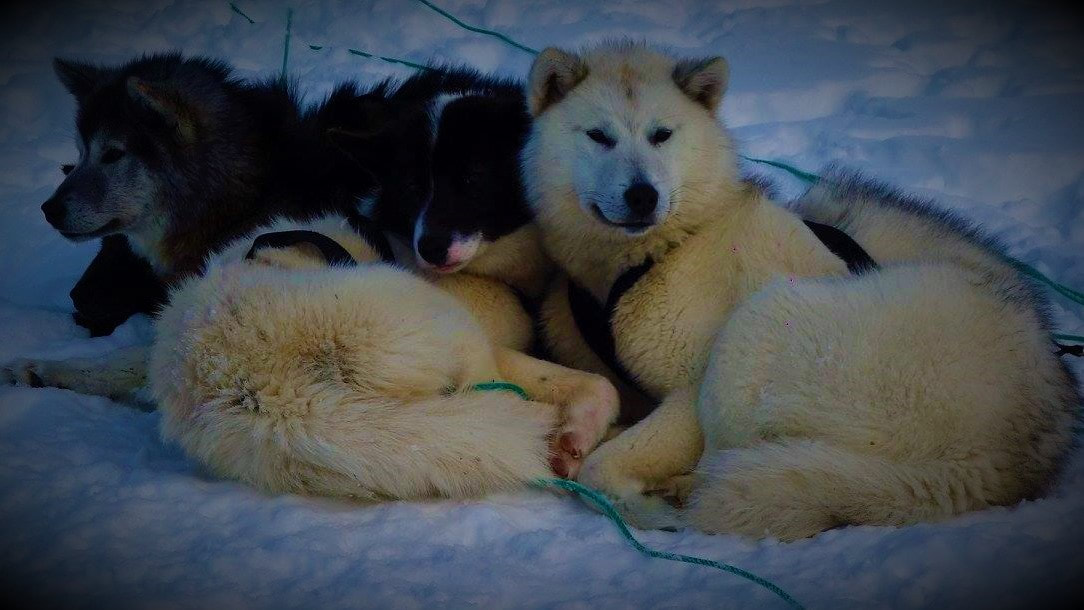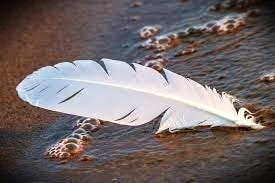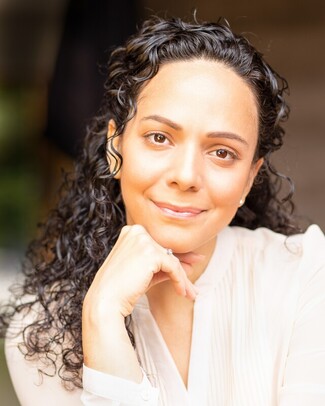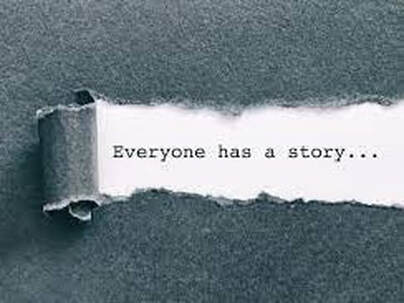DYCP - GEHANE STREHLER
best Practice In Interviewing Refugees/Asylum Seekers/Immigrants & Shaping Verbatim Text Into Performance Pieces
EXAMPLES OF MONOLOGUES / POEMS / SPOKEN WORD / VERBATIM
PAST PERFORMANCES
HOMEWARD BOUND
WHAT'S IN A NAME?
STEPPING UP
hanami
passers by
um ali - mother of ali
SAKURA
A PICTURE PAINTS a HUNDRED WORDS
MVUMILIVU HULA MBIVU - A PATIENT PERSON EATS THAT WHICH IS RIPE
GAMBATTE
SPIRIT OF ADVENTURE
ARCHIE
"PAST PERFORMANCES"
OF PREVIOUS WORK On Refugees / Using Verbatim Text / DeVISED FROM INTERVIEWS / SHOWCASING THOSE DISPLACED BY CONFLICT / MONOLoGUES
"KING LEASH"
|
"LOVE IS NOT NEW IN THIS COUNTRY"
|
"SAHAR SPEAKS"
|
"HOMEWARD BOUND"
VERBATIM - MONOLOGUES OF THREE LONDONERS WHERE HOME IS ELSEWHERE
|
I
Home is very deforested now. The landscape is very colourful, very green. Blue sky - beautiful sunsets. Really beautiful sunsets. And lots and lots of stars at night. I haven't seen so many stars anywhere else in the world. There’s lots of birds and little parrots. And earth. Lots of rain. The smell of rain as well - and it falls very strongly. And you know when the rain is coming. I would sometimes watch the rain coming, the big storms, and then it would go away, straight away, with the sun and it would shine bright again. I love to wake up in the morning when the sun is shining. You feel like you can just get up. There is an energy to the sun, so I feel it's much easier to wake up at home. It is really warm, it's wearing flip flops or walking barefoot, and sun hats. It's really, really hot and humid. I wear hats and skirts and things, but the other people don't wear hats so much - although it's very sunny. The funny thing is, inside the towns there aren’t many trees. If you go outside, yes. So I would wear skirts and dresses and flip flops, or shorts and a T-shirt. Very light materials and light colours, like white. I wouldn't think of wearing black clothes. But a lot of people just wear jeans and tight tops. The natives don't wear many clothes. I remember when I was little, where I grew up, it was all indigenous people who lived there. Then they started to give away the land to people, and people came from the South to make money. And I remember when I was a kid, the indigenous people used to sometimes come into the town, walking in the streets. They would go into a clothes shop, where they sell underwear, and the indigenous women would put their knickers on their head! And other really funny things like that happened - because they didn't know better - and you know, they thought our ways were funny as well. Because they would walk around naked. But nowadays, even the indigenous people have been westernised, and they do wear clothes now in some of the tribes. If I could see home, I guess it is actually a particular time in my life - so maybe when I was younger, my teenage years or early twenties. Just a sense of freedom, having friends around and living in a small town. You could just go around to someone’s house and meet. If I could hear home, yes, it would be birds. I remember in the square in the town, at sunset, lots of birds came and they would make a lot of noise. They go into the trees to sleep. Yes, that's the sound that I think of. The smell of home is the damp earth I guess - when it rains, when it's so hot and then the rain comes - it's really a relief. That's when you can smell the rain coming from far away. The taste of home is rice and beans - but also different fruit. So Juicy. Acai is a fruit that grows a lot. And tapioca. And things with sweetcorn. Back home the sweetcorn is different. It's not as sweet. But we make lots of things with it. All different kinds of foods and desserts and things. If I could feel home, it would be warm. I think more of nature actually, maybe the warm sand between my hands or the warm water in the sea. I think of innocence, a sense of a connection - a bigger connection - to nature. Purity, yes, almost like an innocence. When things are just less complicated, I guess. More simple, yes, simple. Innocent, friendly, open - a real openness. A big celebration is Carnival. When I was a child I used to love it, just to dance - and the happiness! Dressing up. It's a difficult one, because once you've lived away for such a long time, you start to get a bit confused about where home is. There will always be things that are more homely here than there, or more homely there than here. And I guess you start to change, and you start to be more like the people where you're living at that moment. But yes, when I go back home, I always feel like it is home. When I go home, I never want to come back - always, when I go on holiday - it's so lovely, I never want to return! It's true! I love to go because of my family. Not being alone, having help, having support. One stereotype is that we are very open, usually very kind people. We are very friendly and usually quite happy. I don't know, there's a lightness to us. The best thing about home, I guess, is this lightness, or knowing people since you were little. They really know you and therefore they see you in different ways, so they don't judge you in the same way. Home for me, the first thing that came to mind, is that home is my heart. Yes, home is my heart. |
II
The landscape back home has a lot of nature. When I'm thinking about where I grew up, it's so green - lots of green forests, trees. It's quite an open landscape, and there's also the sea. Lakes, big fields. I love horses, they give me a lovely feeling - that's home for me. Because I've been horse riding all my youth. We have the traditional carved wooden horses as well. Very red, orange with bright colours. And I see horses in the fields. And in the wild, it's the reindeers - in the North. Elks. Cows of course, a lot of cows. Home has very clear seasons. I think a lot about the summer. Because summer is so beautiful. Summer, with a lot of flowers. And sailing, I think about our trips out on the sea. In the sailing boat. Then I think about the winter: snow, skiing. Home has very clear seasons - all four seasons. Winter, Autumn, Summer, Spring. Ah, and the traditional dress, the yellow and blue dress, that comes from the landscape and the Midsummer traditions, dancing around the pole. It’s the celebration of summer and light. It's the longest night of the year, so it never gets dark. We celebrate it a lot; it's always a party! We eat our traditional food of herring, salmon - lots of fish and other cold dishes. So we have our traditional food, and we always meet up. A real Midsummer's celebration is always in someone's house. Or maybe on an island. It must be outside in the countryside. It's not the same if you celebrate it in town. We love to sit outside and be in nature. If I could see home, I see a place where I have lots of people I love. I see family. I hear birds and the sound of nature. But different birds - here I have the robin that I really love. And I hear the sea. When I think of home, I can smell fresh air, the grass, the smell of the pine trees. When I taste home, I taste a lot of fish. There is a dish you cook in the oven with potatoes and lots of anchovies. It’s salty, that’s my favourite flavour, but also a little sweet. Something that is also home for me are the cinnamon buns. We eat lots of cinnamon buns and cardamom buns - but the buns back home are amazing! So nice. That's always something you have, you grow up with. And also something you take if you go for a coffee with a friend - because they're so good! If I could feel home, it would be the texture of it. Wood. Because there's a lot of wood. The main element. And we design our houses with a lot of natural wood. The classical house is a red wooden house with white corners. A traditional house. But all the materials are made from nature. Home will always be a connection to nature for me. I feel that instantly because we have a lot of that. The excess of nature is so beautiful, we have always spent the summers there. You are in nature, and the connection you make is very powerful for me. A stereotype would be that we are a nation with a very homely feeling. The home is very important. It's always a place where you invite people to, so you look after your home. And create a nice atmosphere. We have a lot of celebrations at home. It’s a very homely culture, we spend quite a lot of time in our homes. And we spend a lot of money on our homes because we go to each other for dinner a lot. You open up your home - it's an important part of the culture. Another stereotype is that we are blonde and have blue eyes. Most people think that we look healthy, have a healthier lifestyle and dress nicely. I'm proud of my home because it's a beautiful country. Home is where I have my family, people I grew up with. Old friends that I had since I was little. People who know me well. Yeah. Home is where I have people I love. |
III
My mother left her country when she was twenty, she made her home and never went back. I don't know. I guess I did the same. I realise that I left my country and I had my kids in another country, so the idea of home is difficult for me - because it's here, but also there. The landscape is full of nature. It's where I feel safe, I guess, and where I have connections with other people. Safety is very important, because my mother never felt safe because of, you know, the war and everything. And it's transmitted. This kind of fear - not being safe. The language I feel is my language. I feel very familiar with it - it's my childhood language. I'm more stuck in my mother tongue, emotionally, than with English. For example, when I imagine thinking about another life, or something I want to achieve, if I talk to myself in English, I feel much more free than if I talk to myself in my mother tongue - because it’s my memory language. I have all my childhood memories and all the pain, because I wasn't very happy as a child, so I link English as being a language that is more free for me. My home town is a bit like London, but it doesn't rain as much. At the time of growing up, the seasons were a lot more, you know, defined. So in May, you had all the smells of spring. And summer was really summer. It wasn't raining, like here. So I love that. But it was very much a city. There were lots of buildings. It wasn't so green. Like London, it was very concrete. They are very self-conscious about how they dress and look, for other people - you know here, it's much more free in London. People don't care, they wear sports stuff and exercise gear. At home they are more restricted in their dress - it’s a bit heavy actually. If I could see home, it would be the trees, the chestnuts, the conkers and the smell in the garden. We have gardens, but it's not very green. There is a lot of dust, it’s very, very dusty - so I am reminded of the smell of that. And the heat, the smell of the leaves, the new leaves in the gardens. If I could hear home, it would be the birds at the back of the buildings, sometimes in a courtyard. We have courtyards outside on the street, cafés, terraces. I hear people talking, things like that, and the sound of the pigeons - the flapping of their wings. Plenty of birds. If I could taste home it would be wine. I taste red wine. If I could touch home, I guess it would be a game I played with my sister. We would touch the walls when we walked to school, and all the buildings had different, you know, stones. And you would say “oh this is something to eat, like a cake” and we would pretend to eat it. And there were lots of different textures, very grainy, rough or smooth. Christmas was very important for us, and my mother had a particular way to prepare for it. We celebrated on the 24th, Christmas Eve, in the evening, whereas most people celebrate on the 25th, Christmas Day. When you're a child it's nice, but I used to go to church on Sunday. I was in a religious school - but it's not a happy memory. My mother was raised Protestant, and my father was Catholic - so I went to a Catholic school. But you would also have Jewish schools - not as much as here. I don't know, I wasn't aware of it when I was a child, but it was all mixed. The best thing about home is the diversity of the country. You know, you see the mountains, the nature, the rivers - it's amazing. It's an amazing country. The worst thing is that the people complain a lot - because it’s such a beautiful country. They're very like “oh, this is our country” - they’re protective and we're really proud of our country. But it can be in a bad way - a bit nationalistic. The people are very direct. You know, they are rebels. Usually they rebel against stuff. You always hear about the “Yellow Vests'', complaining about the government and trying to change the whole system. And the tax people, they are always chasing you, they don't trust you. Here you just do your tax return and it's fine. They don't send you stuff all the time. At home, they’re always checking, sending you stuff, tracking you down - asking where you live, what's your address, if you have moved - I hate it. A stereotype is that people think that the women are good at sex, American and British men especially. Home is safe, home is family, home is friends, home is community. Home is nature. Home is having your house, your own house. Home is, yeah, welcoming. |
"WHAT'S In A NAME?"
VERBATIM & POETRY - MONOLOGUE OF AN IRANIAN BORN BRIT With HAFEZ QUOTES
🪶“Nothing in existence is more powerful than destiny and destiny brought you here
to this page.”🪶
I was born in Iran in the 60s. My parents moved to Manchester - so as a family we were very well established in Manchester. My family's background is that we're Baha'is, we're not of an Islamic background, and the Baha'is are heavily persecuted in Iran.
🪶“I am in love with every church, and mosque, and temple, and any kind of shrine - it is there that people say the different names of the One God.”🪶
At the time of the Iranian Revolution in ‘79, and to this very day actually, but back then in particular, Baha'is were being rounded up; they were dismissed from their work, their businesses were closed, their properties seized, their graveyards confiscated - and they were being executed, routinely executed without trial.
🪶“Run my dear, from anything that may not strengthen your precious budding wings. Run like hell my dear, from anyone likely to put a sharp knife into the sacred tender vision of your beautiful heart.”🪶
My Grandparents at the time, when the turmoil started around ‘78, sensed there was something about to happen, so they came over to join us in the UK with two suitcases - leaving behind businesses and properties - just to see how things would pan out. But that ended up being their exit from the country and they never went back again.
🪶“The great religions are the ships. Poets - the lifeboats. Every sane person I know has jumped overboard.”🪶
They came to live with us, in our spare room in Manchester, so all my childhood memories, around the age of nine, ten, eleven, were of just being with my Grandparents, crowded around the television, every night, watching the news. It was all about Iran and the Iranian Revolution, and the changes that were happening there.
🪶“There is an ambush, everywhere, from the army of accidents; therefore the rider of life runs with loosened reins.”🪶
We were crowded around watching for any glimmer of hope, or just news, about what's happening to our homeland. That just sort of became my childhood that I remember. But it's funny though, I also remember the same crowding around the telly, with the same people, watching “Dallas” - you know, ten of us watching “Dallas” every week.
🪶“Stay close to anything that makes you glad you are alive.”🪶
When the episode of who shot J.R. was revealed, I remember there were even more relatives, extra relatives in there, all crowded around watching it! TV is a bit like the modern fireplace; it becomes the focal point of family life.
🪶“We are people who need to love. Love is the soul's life. Love is simply creation's greatest joy.”🪶
My family is from Shiraz in Iran. Shiraz is “The City of Poets” - home of Hafez. Most Shirazis will have the poetry committed to memory. Most would readily quote Hafez at you, everybody in the street would be able to quote Hafez at you. Often they’ll have poetry in their back pocket.
🪶“I do not feel like writing verses; but as I light my perfume burner with myrrh and jasmine incense, they suddenly burgeon from my heart like flowers in a garden.”🪶
My family are from Shiraz and very proud of it too. My Grandfather opened the first pharmacy in Iran and they were well off. They had a nice house - not that material stuff is necessarily important - but they did well for themselves, and within the Baha'i community they were very well known. They came from generations of Baha'is - and obviously when the Iranian Revolution was stirring, anybody who was seen as a prominent Baha'i was at risk by the Islamic authorities.
🪶“Come in, my dear, from that harsh world that has rained elements of stone upon your tender face. Every soul should receive a toast from us for bravery.”🪶
So that was one of the principal reasons my Grandparents decided to leave. Many many couldn't and many many didn't - and were persecuted terribly for it. But my family made the decision to just come away, to see how things would pan out, and that decision meant that they actually had to leave behind that life. That life that they'd set up over decades, and pack it into two suitcases, and live in a spare room in their daughter's house in Manchester.
🪶“Grieve not; though the journey of life be bitter, and the end unseen, there is no road which does not lead to an end.”🪶
My identity has always been a bit mixed. I'm born in Iran, clearly from a different culture, from an English, a British culture. But I was also raised here, and I felt very British - predominantly I felt English, British, Mancunian, whatever you want to call it. Around the time of the Iranian Revolution, it coincided with us getting our British citizenship and the process of getting a passport.
🪶“Listen; this world is the lunatic's sphere - don't always agree it's real. Even with my feet upon it, and the postman knowing my door, my address is somewhere else.”🪶
At the time my parents recognised that I was perturbed by everything that was happening back in Iran, and I was shunning everything to do with Iran, because the connotations were so negative. They sat me down and said: “Listen - we recognise it will be difficult - we're more than happy for you to change your name - to make it easier for you - being called Dana Haqjoo may not be that straightforward for you”.
🪶“Now is the time to understand, that all your ideas of right and wrong, were just a child's training wheels - to be laid aside when you finally live with veracity and love.”🪶
So I thought about it, and I thought, yeah, I will - I'm going to change my name. So I wrote my new name down on a bit of paper, and I wish I'd kept it to this day. I wrote down the name Darren Hughes because it's the same initials as Dana Haqjoo. Darren Hughes could not be more divorced from Dana Haqjoo! Anyway, I showed it to them, but I kind of withdrew it. Even the ten or eleven year old me probably thought that was not a wise thing to do. There's turning your back and then there's really turning your back.
🪶“A day of silence can be a pilgrimage in itself. A day of silence can help you listen
to the soul play its marvellous lute and drum.”🪶
I knew it was a stupid thing to do - I've learnt that I love my name. I love what it means. I love the poetry of it. Dana means wisdom or knowledge and Haqjoo means seeker of the truth. I don't know what Darren Hughes means - I'm sure it's equally venerable.
🪶“Greatness is always built on this foundation: the ability to appear, speak and act as the most common man.”🪶
I think I made the right choice. Darren was a cool name in the 70s and there was a footballer called Hughes. Football was to become a real passion and escapism in the following years - and I’m a die hard Manchester United fan!
🪶“Carry your heart through this world like a life-giving sun.”🪶
The rejection, if that's the right word or expression, of the name Darren Hughes, was right. I knew it was right to reject it. As I said, there's turning your back on your identity and then there's really turning your back on it. I knew it was the wrong thing to do, because although I had all those emotions at the time, it wasn't all conflict, it wasn't completely shunning, it wasn’t all turning away.
🪶“Be content with what you have received, and smooth your frowning forehead, for the door of choice is not open either to you, or me.”🪶
I recognised the beauty of my culture by actually having my Grandparents around everyday in the same house. Not everyone has that kind of, some would say privilege, some would say burden, I don't know. But I learnt to speak a little bit of Farsi with my Grandfather as he couldn't really speak English. So my access to the culture kind of increased with them being there.
🪶“Words have no language which can utter the secrets of love.”🪶
It's a funny question though, about identity, because I think that over the years, even though at the time I knew it was instinctively wrong to change my name, my relationship with my heritage has grown and grown and grown.
🪶“I wish I could show you the astonishing light of your own being.”🪶
Over the years, if you'd asked me where I’m from, my answer has evolved. It started off as being “I'm from Manchester” with a very strong Mancunian accent - that was teenage me. The early twenties and thirties me, would say “I'm from Manchester but I live in London”. Now I'm more than happy to say my heritage is from Iran. I'm Iranian. I was raised in Manchester, but I live in London - so I recognise all those things.
🪶“The heart is a thousand stringed instrument that can only be tuned with love.”🪶
But I’m very, very happy to put the headline cultural reference as Iran. I’m very proud of it as well. And that my family is Shiraz. In the same way that I say I'm very proud I'm from Manchester, for all sorts of reasons, I'm very proud to say that I'm from Shiraz, the city of the poets. I think that there's a sort of acknowledgement.
🪶“This place where you are right now, God circled on a map for you.”🪶
Every town has an identity. I think every place you come from has an identity. If you’re from Tehran, Mashhad, Isfahan or Karaj. My name is Dana Haqjoo - the wise seeker of the truth. My name is Dana Haqjoo and I’m from “The City of Poets”.
🪶“One regret, dear world, that I am determined not to have when I am lying on my deathbed, is that I did not kiss you enough.”🪶
to this page.”🪶
I was born in Iran in the 60s. My parents moved to Manchester - so as a family we were very well established in Manchester. My family's background is that we're Baha'is, we're not of an Islamic background, and the Baha'is are heavily persecuted in Iran.
🪶“I am in love with every church, and mosque, and temple, and any kind of shrine - it is there that people say the different names of the One God.”🪶
At the time of the Iranian Revolution in ‘79, and to this very day actually, but back then in particular, Baha'is were being rounded up; they were dismissed from their work, their businesses were closed, their properties seized, their graveyards confiscated - and they were being executed, routinely executed without trial.
🪶“Run my dear, from anything that may not strengthen your precious budding wings. Run like hell my dear, from anyone likely to put a sharp knife into the sacred tender vision of your beautiful heart.”🪶
My Grandparents at the time, when the turmoil started around ‘78, sensed there was something about to happen, so they came over to join us in the UK with two suitcases - leaving behind businesses and properties - just to see how things would pan out. But that ended up being their exit from the country and they never went back again.
🪶“The great religions are the ships. Poets - the lifeboats. Every sane person I know has jumped overboard.”🪶
They came to live with us, in our spare room in Manchester, so all my childhood memories, around the age of nine, ten, eleven, were of just being with my Grandparents, crowded around the television, every night, watching the news. It was all about Iran and the Iranian Revolution, and the changes that were happening there.
🪶“There is an ambush, everywhere, from the army of accidents; therefore the rider of life runs with loosened reins.”🪶
We were crowded around watching for any glimmer of hope, or just news, about what's happening to our homeland. That just sort of became my childhood that I remember. But it's funny though, I also remember the same crowding around the telly, with the same people, watching “Dallas” - you know, ten of us watching “Dallas” every week.
🪶“Stay close to anything that makes you glad you are alive.”🪶
When the episode of who shot J.R. was revealed, I remember there were even more relatives, extra relatives in there, all crowded around watching it! TV is a bit like the modern fireplace; it becomes the focal point of family life.
🪶“We are people who need to love. Love is the soul's life. Love is simply creation's greatest joy.”🪶
My family is from Shiraz in Iran. Shiraz is “The City of Poets” - home of Hafez. Most Shirazis will have the poetry committed to memory. Most would readily quote Hafez at you, everybody in the street would be able to quote Hafez at you. Often they’ll have poetry in their back pocket.
🪶“I do not feel like writing verses; but as I light my perfume burner with myrrh and jasmine incense, they suddenly burgeon from my heart like flowers in a garden.”🪶
My family are from Shiraz and very proud of it too. My Grandfather opened the first pharmacy in Iran and they were well off. They had a nice house - not that material stuff is necessarily important - but they did well for themselves, and within the Baha'i community they were very well known. They came from generations of Baha'is - and obviously when the Iranian Revolution was stirring, anybody who was seen as a prominent Baha'i was at risk by the Islamic authorities.
🪶“Come in, my dear, from that harsh world that has rained elements of stone upon your tender face. Every soul should receive a toast from us for bravery.”🪶
So that was one of the principal reasons my Grandparents decided to leave. Many many couldn't and many many didn't - and were persecuted terribly for it. But my family made the decision to just come away, to see how things would pan out, and that decision meant that they actually had to leave behind that life. That life that they'd set up over decades, and pack it into two suitcases, and live in a spare room in their daughter's house in Manchester.
🪶“Grieve not; though the journey of life be bitter, and the end unseen, there is no road which does not lead to an end.”🪶
My identity has always been a bit mixed. I'm born in Iran, clearly from a different culture, from an English, a British culture. But I was also raised here, and I felt very British - predominantly I felt English, British, Mancunian, whatever you want to call it. Around the time of the Iranian Revolution, it coincided with us getting our British citizenship and the process of getting a passport.
🪶“Listen; this world is the lunatic's sphere - don't always agree it's real. Even with my feet upon it, and the postman knowing my door, my address is somewhere else.”🪶
At the time my parents recognised that I was perturbed by everything that was happening back in Iran, and I was shunning everything to do with Iran, because the connotations were so negative. They sat me down and said: “Listen - we recognise it will be difficult - we're more than happy for you to change your name - to make it easier for you - being called Dana Haqjoo may not be that straightforward for you”.
🪶“Now is the time to understand, that all your ideas of right and wrong, were just a child's training wheels - to be laid aside when you finally live with veracity and love.”🪶
So I thought about it, and I thought, yeah, I will - I'm going to change my name. So I wrote my new name down on a bit of paper, and I wish I'd kept it to this day. I wrote down the name Darren Hughes because it's the same initials as Dana Haqjoo. Darren Hughes could not be more divorced from Dana Haqjoo! Anyway, I showed it to them, but I kind of withdrew it. Even the ten or eleven year old me probably thought that was not a wise thing to do. There's turning your back and then there's really turning your back.
🪶“A day of silence can be a pilgrimage in itself. A day of silence can help you listen
to the soul play its marvellous lute and drum.”🪶
I knew it was a stupid thing to do - I've learnt that I love my name. I love what it means. I love the poetry of it. Dana means wisdom or knowledge and Haqjoo means seeker of the truth. I don't know what Darren Hughes means - I'm sure it's equally venerable.
🪶“Greatness is always built on this foundation: the ability to appear, speak and act as the most common man.”🪶
I think I made the right choice. Darren was a cool name in the 70s and there was a footballer called Hughes. Football was to become a real passion and escapism in the following years - and I’m a die hard Manchester United fan!
🪶“Carry your heart through this world like a life-giving sun.”🪶
The rejection, if that's the right word or expression, of the name Darren Hughes, was right. I knew it was right to reject it. As I said, there's turning your back on your identity and then there's really turning your back on it. I knew it was the wrong thing to do, because although I had all those emotions at the time, it wasn't all conflict, it wasn't completely shunning, it wasn’t all turning away.
🪶“Be content with what you have received, and smooth your frowning forehead, for the door of choice is not open either to you, or me.”🪶
I recognised the beauty of my culture by actually having my Grandparents around everyday in the same house. Not everyone has that kind of, some would say privilege, some would say burden, I don't know. But I learnt to speak a little bit of Farsi with my Grandfather as he couldn't really speak English. So my access to the culture kind of increased with them being there.
🪶“Words have no language which can utter the secrets of love.”🪶
It's a funny question though, about identity, because I think that over the years, even though at the time I knew it was instinctively wrong to change my name, my relationship with my heritage has grown and grown and grown.
🪶“I wish I could show you the astonishing light of your own being.”🪶
Over the years, if you'd asked me where I’m from, my answer has evolved. It started off as being “I'm from Manchester” with a very strong Mancunian accent - that was teenage me. The early twenties and thirties me, would say “I'm from Manchester but I live in London”. Now I'm more than happy to say my heritage is from Iran. I'm Iranian. I was raised in Manchester, but I live in London - so I recognise all those things.
🪶“The heart is a thousand stringed instrument that can only be tuned with love.”🪶
But I’m very, very happy to put the headline cultural reference as Iran. I’m very proud of it as well. And that my family is Shiraz. In the same way that I say I'm very proud I'm from Manchester, for all sorts of reasons, I'm very proud to say that I'm from Shiraz, the city of the poets. I think that there's a sort of acknowledgement.
🪶“This place where you are right now, God circled on a map for you.”🪶
Every town has an identity. I think every place you come from has an identity. If you’re from Tehran, Mashhad, Isfahan or Karaj. My name is Dana Haqjoo - the wise seeker of the truth. My name is Dana Haqjoo and I’m from “The City of Poets”.
🪶“One regret, dear world, that I am determined not to have when I am lying on my deathbed, is that I did not kiss you enough.”🪶
"STEPPING UP"
POEM - RESPONSE TO STORIES TOLD BY HERTFORDSHIRE RESIDENTS
stepping up
stepping out
first steps
small steps
giant leaps
and bounds
stepping outside
previous boundaries
parental
educational
societal
personal
from toddlers and tots
to tweens and teens
finally fully fledged
grown ups
but the shooting up
skyward
the visible growing up
counted by a collection
of candles
on different
incarnations
of icing and sponge
does not constitute
the stepping up
to the podium or plate
that’s really required
with best foot forward
and of course
sure footed
certainly suited and booted
many steps
are hesitant and precarious
like the awkward shuffle
before an escalator
scuttling to the line
watching opportunities
slide by
in foot wide blocks
my steps
into the ring
onto the rung
are often marred
by seriously fucked
footwear
flip-flops
or killer heels
leaving me reeling
and in a flap
even with trainers
i’m just beginning
with a collection of failures
to boot
i admit to being
just a loafer
there’s never a smoothness
to the transition
to finding the adult
in the kid in you
but the first step
i’d say
is take off your shoes
and truly feel barefoot
the fire – the shingles
the jarring rock
that give way in time
to soft sand
counter-steps
sidesteps
you never overstep
the mark
if there’s none to begin with
it’s the footsteps
of the future
that beckon
stepping up
stepping out
first steps
lead to all steps
stepping out
first steps
small steps
giant leaps
and bounds
stepping outside
previous boundaries
parental
educational
societal
personal
from toddlers and tots
to tweens and teens
finally fully fledged
grown ups
but the shooting up
skyward
the visible growing up
counted by a collection
of candles
on different
incarnations
of icing and sponge
does not constitute
the stepping up
to the podium or plate
that’s really required
with best foot forward
and of course
sure footed
certainly suited and booted
many steps
are hesitant and precarious
like the awkward shuffle
before an escalator
scuttling to the line
watching opportunities
slide by
in foot wide blocks
my steps
into the ring
onto the rung
are often marred
by seriously fucked
footwear
flip-flops
or killer heels
leaving me reeling
and in a flap
even with trainers
i’m just beginning
with a collection of failures
to boot
i admit to being
just a loafer
there’s never a smoothness
to the transition
to finding the adult
in the kid in you
but the first step
i’d say
is take off your shoes
and truly feel barefoot
the fire – the shingles
the jarring rock
that give way in time
to soft sand
counter-steps
sidesteps
you never overstep
the mark
if there’s none to begin with
it’s the footsteps
of the future
that beckon
stepping up
stepping out
first steps
lead to all steps
"HANAMI"
VERBATIM - A JAPANESE NATIVE TALKs ABOUT THe traditional spring flower festival
Hanami is a really lovely tradition to do with celebrating the coming of Spring and the start of something. I used to live just near Kobe, which is the western side of Japan, in this place called Shukugawa. I lived there when I was five. Shukagawa is a river, and there was a whole row of cherry blossoms all along the river bank. In order to get to school, you had to walk along the river. The memory I have, is walking to school under the cherry blossoms. They symbolise many things in Japan, because it blooms in April, which is the beginning of the academic year. So it’s the beginning of everything. In Japan, in primary schools, they have a specific backpack that they take to school. It’s called Randoseru and it also symbolises the beginning of the academic year. Obviously in the spring, the cherry blossoms are in bloom, and it was very beautiful to walk along this river bank, with rows of cherry blossoms. That’s my memory; images of children with this special backpack going to school under the cherry blossom.
I don’t think anyone could not feel that beauty and awe. The Japanese cherry blossom, called Somei-Yoshino, only blooms for about a week. When it blooms, it becomes this very feint beautiful pink, all over, and you really can’t help but admire it. That’s probably why people do Hanami, and try to appreciate it. People also celebrate it because it is transient, it doesn’t last forever. The blossoms are beautiful, but so are the petals, actually falling, extremely beautiful – like snow. People in Japan really love the scene of the petals falling. In Kabuki and Noh, the traditional Japanese art of theatre, they often have cherry blossom petals falling in many scenes and stories, because of its beauty. At the same time, they also have this idea of it being slightly sinister and scary, sort of bewitching – so there’s this kind of bewitched beauty in its demise. I think the Japanese have the idea of things passing being what makes everything beautiful. I think there is that deep belief.
Hanami itself in the Japanese culture is quite interesting. We’re not a religious nation any more, but the customs of the tradition remain. People have this innate belief and understanding that we are connected to nature. If you’ve watched any Hayao Miyazaki films – a famous animation director of “Spirited Away” – you see from the Studio Ghibli films, many people who are very destructive environmentally, still have the sense of being connected to nature; because nature has been very deeply connected to the Japanese psyche and religion.
Shinto in its original state is animism, an animistic religion whereby everything in nature has spirits in them. So that’s probably still ingrained in Japanese people. Therefore people love looking at nature, to walk, doing things with nature. Nowadays in the West they talk about Shinrin Yoku – forest bathing. Japanese people have a very deep connection to nature and the sounds of nature, traditionally, therefore that’s been carried to the modern day. In the summer, people would listen out for certain insects. Some insect sounds represent the other seasons. In autumn people eat certain foods. Everything is to do with nature, and so cherry blossoms are the symbol of Spring and the start of the academic year. Which is why people celebrate Hanami.
I don’t think anyone could not feel that beauty and awe. The Japanese cherry blossom, called Somei-Yoshino, only blooms for about a week. When it blooms, it becomes this very feint beautiful pink, all over, and you really can’t help but admire it. That’s probably why people do Hanami, and try to appreciate it. People also celebrate it because it is transient, it doesn’t last forever. The blossoms are beautiful, but so are the petals, actually falling, extremely beautiful – like snow. People in Japan really love the scene of the petals falling. In Kabuki and Noh, the traditional Japanese art of theatre, they often have cherry blossom petals falling in many scenes and stories, because of its beauty. At the same time, they also have this idea of it being slightly sinister and scary, sort of bewitching – so there’s this kind of bewitched beauty in its demise. I think the Japanese have the idea of things passing being what makes everything beautiful. I think there is that deep belief.
Hanami itself in the Japanese culture is quite interesting. We’re not a religious nation any more, but the customs of the tradition remain. People have this innate belief and understanding that we are connected to nature. If you’ve watched any Hayao Miyazaki films – a famous animation director of “Spirited Away” – you see from the Studio Ghibli films, many people who are very destructive environmentally, still have the sense of being connected to nature; because nature has been very deeply connected to the Japanese psyche and religion.
Shinto in its original state is animism, an animistic religion whereby everything in nature has spirits in them. So that’s probably still ingrained in Japanese people. Therefore people love looking at nature, to walk, doing things with nature. Nowadays in the West they talk about Shinrin Yoku – forest bathing. Japanese people have a very deep connection to nature and the sounds of nature, traditionally, therefore that’s been carried to the modern day. In the summer, people would listen out for certain insects. Some insect sounds represent the other seasons. In autumn people eat certain foods. Everything is to do with nature, and so cherry blossoms are the symbol of Spring and the start of the academic year. Which is why people celebrate Hanami.
"PASSERS BY"
VERBATIM - OVERHEARD AT HAMPSTEAD HEATH Model boating POND
01 - “My jeans have got muddy already.”
02 - “Here you are - get all the bread duckies!”
03 - “Eventually, it’s swallowing everything up.”
04 - “It was going to cost four pounds return postage.”
05 - “She makes this unbelievable thing with garlic!”
06 - “He doesn't know how to talk about relationships.”
07 - “She always says that - abolish the police.”
08 - “All the schools are the same, it's just disgusting.”
09 - “That's not something recommended.”
10 - “It's like, completely, absolutely ridiculous!”
11 - “Every time we meet she talks about herself.”
12 - “What are you going to do about it?”
13 - “I'm not even joking, no one there had normal coloured hair!”
14 - “You can't argue the girls aren't on there.”
15 - “I think we’ve gone the wrong way.”
16 - “No, they’re moving really soon.”
17 - “He's really into his conspiracy theories.”
18 - “It's not the right time, it's not the right moment.”
19 - “Come on Benji – here boy!”
20 - “I've already taken loads of photos of you.”
21 - “Did you want to get ice cream?”
02 - “Here you are - get all the bread duckies!”
03 - “Eventually, it’s swallowing everything up.”
04 - “It was going to cost four pounds return postage.”
05 - “She makes this unbelievable thing with garlic!”
06 - “He doesn't know how to talk about relationships.”
07 - “She always says that - abolish the police.”
08 - “All the schools are the same, it's just disgusting.”
09 - “That's not something recommended.”
10 - “It's like, completely, absolutely ridiculous!”
11 - “Every time we meet she talks about herself.”
12 - “What are you going to do about it?”
13 - “I'm not even joking, no one there had normal coloured hair!”
14 - “You can't argue the girls aren't on there.”
15 - “I think we’ve gone the wrong way.”
16 - “No, they’re moving really soon.”
17 - “He's really into his conspiracy theories.”
18 - “It's not the right time, it's not the right moment.”
19 - “Come on Benji – here boy!”
20 - “I've already taken loads of photos of you.”
21 - “Did you want to get ice cream?”
"UM ALI - mother of ali"
spoken word - creative RESPONSE to a woman speaking about her FAVOURITE DISH
this dish
I love to cook it
it’s got Middle Eastern flavours
but it’s a dish
I did not like at all
in the days of Buchan School
in the Isle of Man
Bread & Butter Pudding
I avoided those dishes
for a long, long time
I got married to my husband
he loves Bread & Butter Pudding
I couldn’t see the excitement
I found out
through the years
we have a Bread & Butter Pudding dish
in the Middle East
called "Um Ali"
it’s very, very plain
but I make it very, very often
and I flake croissant
then use pistachio nuts
chopped pistachio nuts
I use flaked almond
it calls for cinnamon
it calls for rosewater
it calls for cream
cardamom as well
a little bit of lemon juice
just have to taste it
I mix all of this
heart warming flavours
of my Middle East background
then here we have
a very very festive dish
with a very very ordinary name
Bread & Butter Pudding
in the Middle East
known as just
"Um Ali"
Middle Eastern or Persian
Afghani or Lebanese
it’s the aromatic flavours
the cinnamon
the spices that we use
for mulled wine
Christmas
Frankincense
Gold
Myrrh
look at the history
of mince pies
the original recipes
a short crust pastry
the spices
they stuff it
with dates
these recipes that were
sort of handed down
were all Middle Eastern
and that’s the origin
goes a way, way back
the history of it
probably somebody
going a long, long way back
about the thirteenth century
maybe somebody created
a perfect dessert
the dessert created by
"Um Ali"
in the olden days
they called you
by your first son’s name
so I’ve always assumed
Ali’s mother
was good at making this dessert
I’ve learnt to love
the name of the recipe
the national dessert of Egypt
"Mother Of Ali"
I love to cook it
it’s got Middle Eastern flavours
but it’s a dish
I did not like at all
in the days of Buchan School
in the Isle of Man
Bread & Butter Pudding
I avoided those dishes
for a long, long time
I got married to my husband
he loves Bread & Butter Pudding
I couldn’t see the excitement
I found out
through the years
we have a Bread & Butter Pudding dish
in the Middle East
called "Um Ali"
it’s very, very plain
but I make it very, very often
and I flake croissant
then use pistachio nuts
chopped pistachio nuts
I use flaked almond
it calls for cinnamon
it calls for rosewater
it calls for cream
cardamom as well
a little bit of lemon juice
just have to taste it
I mix all of this
heart warming flavours
of my Middle East background
then here we have
a very very festive dish
with a very very ordinary name
Bread & Butter Pudding
in the Middle East
known as just
"Um Ali"
Middle Eastern or Persian
Afghani or Lebanese
it’s the aromatic flavours
the cinnamon
the spices that we use
for mulled wine
Christmas
Frankincense
Gold
Myrrh
look at the history
of mince pies
the original recipes
a short crust pastry
the spices
they stuff it
with dates
these recipes that were
sort of handed down
were all Middle Eastern
and that’s the origin
goes a way, way back
the history of it
probably somebody
going a long, long way back
about the thirteenth century
maybe somebody created
a perfect dessert
the dessert created by
"Um Ali"
in the olden days
they called you
by your first son’s name
so I’ve always assumed
Ali’s mother
was good at making this dessert
I’ve learnt to love
the name of the recipe
the national dessert of Egypt
"Mother Of Ali"
"Sakura"
VERBATIM - the power of cherry blossom
I’m sure a lot of people visit Japan – because you heard about the beautiful cherry blossom – in Japan very famous – something special for us cherry blossom – quite difficult to explain – such a deep – something – of course stunning, beautiful – but it’s not just a visual beauty – something much more – much more religious maybe – much more ancient – it’s not only five senses – something more spiritual – something connecting deeply to nature – cherry blossom – yes, I feel female – almost a feeling like in the womb – like a baby – totally safe – totally peace – totally protected – but at the same time we can’t stay in the womb forever – sort of same feeling – any flower of course – it’s not a permanent – so that’s why even more special – to be enjoyed at the moment – because impermanent – it’s not big flower, it’s very small – but so delicate – soft like a mother – Japanese are very famous – we are working as a group very well – maybe also Japanese psyche – it’s not a big flower – small flower – individually of course different – but together create amazing power – so like Japanese people – individual flowers are so small – but big bunch of cherry blossoms – just stunning – just amazing – I was born in Tokyo – famously very urban, very modern – but nature make us more down to earth – we’re living in the nature – we are connecting with nature – so just flower is very special – special amazing power – somehow cherry blossom is magical – something unexplained power – something more modest – sort of soft – like a certain music – more like a bass note – working all the time.
Cherry blossom in Japan – almost a welcoming – like a new chapter of life – spring is something everybody feels – beginning – something starting anew – something very deeply exciting – any age – any life – expectations – hope – wonderful things will come – so of course it starts by enjoying viewing cherry blossom – everybody really looking forward – everybody talk about – where this year we shall watch – we move around to enjoy – we really travel every year to see as long as possible – to enjoy cherry tree blossoms – usually we sit – we put a cloth – under the cherry tree – we want to share this beauty – this impermanent beautiful flower – we want to share with other people – without seeing cherry blossom in spring – it doesn’t complete the year – I have to see it – we are impermanent – same time flowers impermanent – also the same as nature – that something continues – and a new life is coming – new flowers are coming – I’m sure when you go to Japan – I’m sure you feel it beautiful – of course there are so many different cherry blossom – but usually most famous ones very pale – and that sort of beauty – something not too much – not too strong colour – pale, delicate – sort of frail – a Japanese sense of beauty – but there is strange something – like a special spell – amazing – make us crazy – but also if we can enjoy all the year round – we are not so crazy – because it’s such a short period we can enjoy – so extra special.
For me I associate with my family – because always we enjoy and we go to see together – every year we discuss where go to see it – we have so much memories to enjoy cherry blossoms – some special moments for me – I lost my Dad last year – so that is also connecting – because my Dad also really loved cherry trees – so he planted a lot of cherry trees – at the country house – and every time – when I married, he planted a cherry tree – when I had a daughter, he planted another cherry tree – something like a special memorial tree – he chose always cherry tree – so it’s nice we see that – because also we are changing – but also tree growing – so we can reflect how long our marriage is – how long my daughter was born – something nice like a marking – reflect our life, or our being, or event of our life – everything linking to cherry tree – he left tree – you know he is gone – cherry tree remain – I will be gone some point – but maybe cherry tree will stay – other people can enjoy cherry tree – so for me the cherry tree is why I remember my Dad – this is a very special memory for me.
I think usually cherry tree lives for long time – so sometimes we feel what kind of ancient people enjoy standing here – same tree – same spot – that is magical – tree just very quietly every year coming – they don’t care somebody knew they are there – just blossom – even somebody already gone – plant it long, long time ago – tree just coming every year – just coming quietly – just blossoming – like a reincarnation – we have also – probably I was there before – coming back again – maybe I’m watching again, same tree – even when somebody become so ill – we really want to at end of the life – before die, we want to see – “can I watch, can I enjoy cherry tree, can I stay there one last time” – but at the same time, some deep psychology – we want to come back to see it – I don’t know – maybe not just physically me – different format – maybe butterfly next time – but we want to come back to see it – cherry tree – cherry blossom – and maybe my ancestors – it’s like life is almost passing back life – to another person to enjoy that cherry tree – cherry blossom – there are so many people enjoy that one tree – I feel that so beautiful – maybe my father planted my daughter’s cherry tree – but everybody can enjoy it – not just us – and maybe they don’t know my Dad’s intentions – but doesn’t matter – make everybody happy – we just enjoy cherry tree – if you sit under the tree – we have time to reflect – imagine probably what this means – usually we stay under the tree for long time – sometimes just quiet and imagine history before – imagine what kind of feeling – behind somebody’s special tree – memorial tree – or maybe somebody propose under the tree – it’s quite interesting to think about – but tree can’t move – tree stay there – but they are watching us – from above – so many lives – so many stories – so many experiences.
Cherry trees are amazing – I just say to people “I want you to experience, go to Japan to just walk, or to stay under cherry blossom” – I want you to experience – I hope you can sense something of what I feel – probably you can understand – and I hope if you go to Japan – I want you to chose to go in Spring – maybe yourself experience something – something there – like a special spirit – like magic, like a spell – we feel something very poetic somehow – something really beautiful – not like gold – it’s not like treasure kind of beauty – something more poetical beauty – of course cherry tree is something we can see, we can touch – but there behind it, is something we can’t touch – but we treasure it – I hope you can go to Japan – maybe you can see the cherry blossom – there they call it "Sakura".
Cherry blossom in Japan – almost a welcoming – like a new chapter of life – spring is something everybody feels – beginning – something starting anew – something very deeply exciting – any age – any life – expectations – hope – wonderful things will come – so of course it starts by enjoying viewing cherry blossom – everybody really looking forward – everybody talk about – where this year we shall watch – we move around to enjoy – we really travel every year to see as long as possible – to enjoy cherry tree blossoms – usually we sit – we put a cloth – under the cherry tree – we want to share this beauty – this impermanent beautiful flower – we want to share with other people – without seeing cherry blossom in spring – it doesn’t complete the year – I have to see it – we are impermanent – same time flowers impermanent – also the same as nature – that something continues – and a new life is coming – new flowers are coming – I’m sure when you go to Japan – I’m sure you feel it beautiful – of course there are so many different cherry blossom – but usually most famous ones very pale – and that sort of beauty – something not too much – not too strong colour – pale, delicate – sort of frail – a Japanese sense of beauty – but there is strange something – like a special spell – amazing – make us crazy – but also if we can enjoy all the year round – we are not so crazy – because it’s such a short period we can enjoy – so extra special.
For me I associate with my family – because always we enjoy and we go to see together – every year we discuss where go to see it – we have so much memories to enjoy cherry blossoms – some special moments for me – I lost my Dad last year – so that is also connecting – because my Dad also really loved cherry trees – so he planted a lot of cherry trees – at the country house – and every time – when I married, he planted a cherry tree – when I had a daughter, he planted another cherry tree – something like a special memorial tree – he chose always cherry tree – so it’s nice we see that – because also we are changing – but also tree growing – so we can reflect how long our marriage is – how long my daughter was born – something nice like a marking – reflect our life, or our being, or event of our life – everything linking to cherry tree – he left tree – you know he is gone – cherry tree remain – I will be gone some point – but maybe cherry tree will stay – other people can enjoy cherry tree – so for me the cherry tree is why I remember my Dad – this is a very special memory for me.
I think usually cherry tree lives for long time – so sometimes we feel what kind of ancient people enjoy standing here – same tree – same spot – that is magical – tree just very quietly every year coming – they don’t care somebody knew they are there – just blossom – even somebody already gone – plant it long, long time ago – tree just coming every year – just coming quietly – just blossoming – like a reincarnation – we have also – probably I was there before – coming back again – maybe I’m watching again, same tree – even when somebody become so ill – we really want to at end of the life – before die, we want to see – “can I watch, can I enjoy cherry tree, can I stay there one last time” – but at the same time, some deep psychology – we want to come back to see it – I don’t know – maybe not just physically me – different format – maybe butterfly next time – but we want to come back to see it – cherry tree – cherry blossom – and maybe my ancestors – it’s like life is almost passing back life – to another person to enjoy that cherry tree – cherry blossom – there are so many people enjoy that one tree – I feel that so beautiful – maybe my father planted my daughter’s cherry tree – but everybody can enjoy it – not just us – and maybe they don’t know my Dad’s intentions – but doesn’t matter – make everybody happy – we just enjoy cherry tree – if you sit under the tree – we have time to reflect – imagine probably what this means – usually we stay under the tree for long time – sometimes just quiet and imagine history before – imagine what kind of feeling – behind somebody’s special tree – memorial tree – or maybe somebody propose under the tree – it’s quite interesting to think about – but tree can’t move – tree stay there – but they are watching us – from above – so many lives – so many stories – so many experiences.
Cherry trees are amazing – I just say to people “I want you to experience, go to Japan to just walk, or to stay under cherry blossom” – I want you to experience – I hope you can sense something of what I feel – probably you can understand – and I hope if you go to Japan – I want you to chose to go in Spring – maybe yourself experience something – something there – like a special spirit – like magic, like a spell – we feel something very poetic somehow – something really beautiful – not like gold – it’s not like treasure kind of beauty – something more poetical beauty – of course cherry tree is something we can see, we can touch – but there behind it, is something we can’t touch – but we treasure it – I hope you can go to Japan – maybe you can see the cherry blossom – there they call it "Sakura".
"A picture paints a hundred words"
verbatim - an artist connects to her paintings IN one HUNDRED WORDS
|
"WAITING IN LINE"
I was drawn to this picture in a “Médecins Sans Frontières” newsletter. To this group of Sudanese women in East Africa, waiting for food distribution, the barren background, the colours. I saw this and thought “that’s Africa, that’s poverty”. The colours, the scene, the experience of waiting in line. The experience of these people. Their patience and endurance - that has never changed through the years, through the decades. These people will just stand in line. In the heat. Waiting. In their brightly coloured garments. What really did strike me is the patience. You can see it in their faces. "COLOURS OF ZANZIBAR"
This is Zanzibar. Aqua green. I have been to Zanzibar and the colours are what they are. It was just breathtaking – the colours. I do love turquoise. It’s one of my favourite colours. I have been in a setting just like that. I painted this from a travel magazine. It evokes holiday. It reminds me of the holidays I’ve experienced. This is how it was. These are the colours of Zanzibar. They are exactly as they are. The sea and the beauty is just fantastic. And tranquillity. And joy! For me it’s the colours! I’m always going back to colours! |
"REFLECTION"
This has always been a place for me to process thoughts, vent frustrations. It’s a place of beauty, of serenity, of life. Whenever I feel isolated or alone – I step out – I want to find life and activity and children playing and laughing. It’s a place I’ve been with my children, with friends. You can have this serenity, this solitude, or it can be full of people. Sometimes I went and it was Eid. Or Divali. Families celebrating. It’s not a bright day, but the light is glistening on the water – and there’s that blue grey light in the sky... "WHAT IF"
I was connecting lots of things – being contemplative, reflective, pensive. This girl looking towards the mountains, thinking of her father, going through the bereavement process, asking herself “what if?” - so many difficult questions, a lot of them maybe without answers. It’s a loss of somebody that is so close – but then you haven’t had time to fully know that person. The landscape for me holds a lot of potential. She’s drawn to the mountains, wondering what is behind them. Just imagine, all your thoughts, standing there, processing… She’s trying to reach out to those mountains. It’s an atmospheric painting. |
"BLUE WINDOW"
My daughter sent me a postcard from New Mexico. I’ve had it all these years. “Dear Mummy – this picture reminded me of you – lots of love!”. I liked the pattern in the voile, the bright flowers, not well manicured. There’s a certain beauty in the way they’re left on their own – and the striking blue of the painted frame. There’s a shabby beauty about it - the weathered look of the wall, the colour of it - so beautiful, so natural. It’s the joy of being connected. The joy of colours. I just lose myself. When I paint everything stops. "SUNSET"
This sunset in Rickmansworth was typical of a Hawaiian sunset. I was so attracted by the intensity of the colours. The play of lights, the greys, the pinks and bright fiery red, orange, and that yellow! In Rickmansworth! It was just so fantastic - that yellow. When do we get to see, and capture, that yellow? In the sky in Rickmansworth?! The dark silhouettes and background - obviously the sun is setting - you see this fantastic contrast. It’s lovely. This particular sunset was caught in November. That made me go “wow!” – such vibrant colours on a cold November night. |
"MVUMILIVU HULA MBIVU - A PATIENT PERSON EATS THAT WHICH IS RIPE"
verbatim - A cook speaks of her struggles to FULFILL her culinary dream
Africa feels like home. Home is weather, people, food. Back home we cook with cloves, cardamom, vanilla, cinnamon, peppercorns.
The bravest thing I did is go back to school. I wanted to get a better job and learn more about the world. I wanted to study Nutrition at university. I got three conditional offers. At the time they were increasing school fees, so people rushed for places. All my places were taken. I was just crushed. This friend called me and said “There’s a chance in clearance, call this number”. So I called, explained my situation, and they said “Do Public Health”. I had no choice. That was my only chance.
It wasn’t easy. Starting at 7am in the morning. You have to wake up early. Leave at 5am in the freezing cold! The journey to university took two hours. Assignments had a deadline. If you missed that, you won’t pass. Lecturers don’t want to hear you had network problems. Or that you were late. There was an accident. They don’t want to listen. No excuse.
My greatest challenge was in the second year. A close cousin got cancer. Family is important. Accepting responsibility is too. I went to Rome to offer her support. There were no other relatives so I sacrificed my time. Unfortunately she passed on near the exam period in June. I had to help send the body back home and go to Kenya for the burial. I didn’t have access to the internet in the village. I missed filling forms, confirming my exams. They told me I had to defer to next year. This really affected me badly. My year gone, wasted.
I wanted to give up all together but decided to continue. I would advise never give up and go for your dreams! Sometimes things don’t work out the way you plan. That’s part of life. But I didn’t give up on my dreams to work in the community, do my nutrition cookery classes tackling obesity, diabetes. Instead of taking tablets, give people cooking skills! Plants have medicinal properties. Food is your medicine.
So I formed a group of ladies to come together and cook, only to find out you need a Food & Hygiene certificate. The ladies said “If you want this, we can arrange this, go and do the course!”. So that took another year. When I registered, I found out they were also teaching nutrition skills! I only went to get my Food & Hygiene certificate, but finally got back into nutrition. It took me years and years. I said “You wanted to be a nutritionist, finally you’re doing what you wanted to do!”.
The ladies were from different places, so we called ourselves “Multicultural Kitchen”. In every country, culture, society in the world, they have a pestle and mortar to pound herbs and spices. It’s universal so we made that our logo.
My dream is to use my pestle and mortar, to heal with food, that is my love.
The bravest thing I did is go back to school. I wanted to get a better job and learn more about the world. I wanted to study Nutrition at university. I got three conditional offers. At the time they were increasing school fees, so people rushed for places. All my places were taken. I was just crushed. This friend called me and said “There’s a chance in clearance, call this number”. So I called, explained my situation, and they said “Do Public Health”. I had no choice. That was my only chance.
It wasn’t easy. Starting at 7am in the morning. You have to wake up early. Leave at 5am in the freezing cold! The journey to university took two hours. Assignments had a deadline. If you missed that, you won’t pass. Lecturers don’t want to hear you had network problems. Or that you were late. There was an accident. They don’t want to listen. No excuse.
My greatest challenge was in the second year. A close cousin got cancer. Family is important. Accepting responsibility is too. I went to Rome to offer her support. There were no other relatives so I sacrificed my time. Unfortunately she passed on near the exam period in June. I had to help send the body back home and go to Kenya for the burial. I didn’t have access to the internet in the village. I missed filling forms, confirming my exams. They told me I had to defer to next year. This really affected me badly. My year gone, wasted.
I wanted to give up all together but decided to continue. I would advise never give up and go for your dreams! Sometimes things don’t work out the way you plan. That’s part of life. But I didn’t give up on my dreams to work in the community, do my nutrition cookery classes tackling obesity, diabetes. Instead of taking tablets, give people cooking skills! Plants have medicinal properties. Food is your medicine.
So I formed a group of ladies to come together and cook, only to find out you need a Food & Hygiene certificate. The ladies said “If you want this, we can arrange this, go and do the course!”. So that took another year. When I registered, I found out they were also teaching nutrition skills! I only went to get my Food & Hygiene certificate, but finally got back into nutrition. It took me years and years. I said “You wanted to be a nutritionist, finally you’re doing what you wanted to do!”.
The ladies were from different places, so we called ourselves “Multicultural Kitchen”. In every country, culture, society in the world, they have a pestle and mortar to pound herbs and spices. It’s universal so we made that our logo.
My dream is to use my pestle and mortar, to heal with food, that is my love.
"gambatte"
VERBATIM - the negative effect of the positive japanese affirmation
Gambatte means, like, ‘Do your best!’, so when you want to cheer someone up, you say, Gambatte Kudasai. In many situations, for example, kids are having this, in Japan (at the age of my children Jin and Keiji) their field festival. Kids run, and so compete each other, yeah, or anything sports, and then when we want them to do best we say, ‘Gambatte Jin! Gambatte Keiji!’. Or the kids say that to friends, that’s very common, but also, when you’re older, and then maybe your boss might say, ‘This is your task, do your best, Gambatte!’ but that can sound a bit, what you say, pressure? Yeah, because in Japan the number of mental health problem is increasing for many years, and then I see these news and some people comment that people telling them, ‘Gambatte, gambatte!’ even though they are, you know, trying to do their best, or trying to find a way. They can’t, they don’t know what to do sometimes. They don’t know how chin up, they don’t know how to get over the problem. But if people, or friends, or family, they say it for them, they say it to cheer them up, but sometimes that can be, what do you say, that can be very sensitive word, phrase, to say.
I think I say, ‘Gambatte!’ to my children, but how can I say, because I think they are not very sensitive about it, or I think they are not stressed too much. Yeah, so, like, when you’re young, and you say that to friends, you really mean, ‘Do your best!’ and that’s a very pure feeling, right? But when the boss says, ‘Gambatte!’ to, I don’t know, workers, or teachers say, ‘Gambatte Kudasai!’ this is your work, and you need to do your best to get into this Uni or something, as we grow, that phrase, ‘Gambatte!’ can give people a lot of pressure. Yeah, because I realised while I’m growing, and also I see a lot of people who are having difficulties, say that, ‘Gambatte!’ the phrase give them more pressure. So when I want to say similar thing, I don’t choose, ‘Gambatte’ any more, more like, ‘Gambaro!’. Yeah because it sound more like a wish. ‘Gambaro!’ is more like, ‘Let’s do it together!’ or like, you can show them that you are there to, you know, help them or support them. So ‘Gambatte!’ and ‘Gambaro!’ sounds a bit different. ‘Gambaro!’ is more like, ‘We need to do it together’ and, ‘Gambatte!’ is just leave everything to the person, right? ‘Do your best, that’s your thing, do your best’ but ‘Gambaro!’ is more like, ‘Let’s get over this together’. Yeah, more like group, so you are not alone. Maybe that’s the person’s task or job, but if my boss said ‘Gamboro! We can do this!’ then I will say, ‘Ok, if I need help, I can ask you. If I have problem, I can ask you’. That’s the difference.
I don’t really know when that started but, maybe when I started working, I think I saw more news about it. When I started work, you know, at my company, there were lots of targets, like selling products. You know, our bosses give us targets and then, if we can’t reach, they could be horrible to you, or say negative things about you. I saw, you know, lots of colleagues having problems, even though they were doing well, very well, but they had mental problems. They didn’t want to go to work any more. So that became too much stress, too much pressure for them. It’s also very common thing to work overtime in Japan. It’s very normal thing to do that, how can I say, if you see your boss sitting there after 5:30pm and doing work, even though you can go home, but you stay there. Or when you see your colleagues still working there, and you feel bad about saying, ‘bye’ and go home earlier than them. Also in Japan we have this, how can I say, ‘if you do this, I do it with you’ like, yeah, team spirit. But it can be negative like this, yeah, because, everybody does it, there is expectation, like, your colleagues, or maybe you, you have expectation as well, like, ‘oh because I’m here, you should be here’. You can’t just go home, until everybody else goes home. You should stay and do your work a bit longer. So that can cause big problem, because you are so exhausted the end of the day, right, so don’t have time to socialise or spend time with your family when you go home. There is a problem because of that, maybe family problem or you feel lonely. So, yeah, that can cause problem, I think, mental health problem.
Can I say, ‘Gambatte’ to myself? It depends on my situation, and how I feel that time, I think, because if I’m already feeling pressure or expectation from someone else, then if I want to push myself more, sometimes that can be a bit too much. I know I’m not a very hard-working person, but I know I don’t like being lazy, so I think I need to learn balancing, you know, sometimes you need to make it easy, yeah. I don’t want to be controlled by those pressure. It’s important, you need it to do something, right, you need pressure. We have pressure, different kinds of pressure all the time, from different things, or different people. I know it’s necessary sometimes, but if that makes your situation more difficult or more stressful, then maybe you don’t need to push yourself, that’s how I feel. To others as well, when I write a message to my friends in Japanese, and we want to cheer ourselves up, right, in the end of the message, I don’t want to say, ‘Gambatte’ to the person. More like ‘Gambaro’ because that’s all of us – ‘we can do this’. I want to give that message instead.
I think I say, ‘Gambatte!’ to my children, but how can I say, because I think they are not very sensitive about it, or I think they are not stressed too much. Yeah, so, like, when you’re young, and you say that to friends, you really mean, ‘Do your best!’ and that’s a very pure feeling, right? But when the boss says, ‘Gambatte!’ to, I don’t know, workers, or teachers say, ‘Gambatte Kudasai!’ this is your work, and you need to do your best to get into this Uni or something, as we grow, that phrase, ‘Gambatte!’ can give people a lot of pressure. Yeah, because I realised while I’m growing, and also I see a lot of people who are having difficulties, say that, ‘Gambatte!’ the phrase give them more pressure. So when I want to say similar thing, I don’t choose, ‘Gambatte’ any more, more like, ‘Gambaro!’. Yeah because it sound more like a wish. ‘Gambaro!’ is more like, ‘Let’s do it together!’ or like, you can show them that you are there to, you know, help them or support them. So ‘Gambatte!’ and ‘Gambaro!’ sounds a bit different. ‘Gambaro!’ is more like, ‘We need to do it together’ and, ‘Gambatte!’ is just leave everything to the person, right? ‘Do your best, that’s your thing, do your best’ but ‘Gambaro!’ is more like, ‘Let’s get over this together’. Yeah, more like group, so you are not alone. Maybe that’s the person’s task or job, but if my boss said ‘Gamboro! We can do this!’ then I will say, ‘Ok, if I need help, I can ask you. If I have problem, I can ask you’. That’s the difference.
I don’t really know when that started but, maybe when I started working, I think I saw more news about it. When I started work, you know, at my company, there were lots of targets, like selling products. You know, our bosses give us targets and then, if we can’t reach, they could be horrible to you, or say negative things about you. I saw, you know, lots of colleagues having problems, even though they were doing well, very well, but they had mental problems. They didn’t want to go to work any more. So that became too much stress, too much pressure for them. It’s also very common thing to work overtime in Japan. It’s very normal thing to do that, how can I say, if you see your boss sitting there after 5:30pm and doing work, even though you can go home, but you stay there. Or when you see your colleagues still working there, and you feel bad about saying, ‘bye’ and go home earlier than them. Also in Japan we have this, how can I say, ‘if you do this, I do it with you’ like, yeah, team spirit. But it can be negative like this, yeah, because, everybody does it, there is expectation, like, your colleagues, or maybe you, you have expectation as well, like, ‘oh because I’m here, you should be here’. You can’t just go home, until everybody else goes home. You should stay and do your work a bit longer. So that can cause big problem, because you are so exhausted the end of the day, right, so don’t have time to socialise or spend time with your family when you go home. There is a problem because of that, maybe family problem or you feel lonely. So, yeah, that can cause problem, I think, mental health problem.
Can I say, ‘Gambatte’ to myself? It depends on my situation, and how I feel that time, I think, because if I’m already feeling pressure or expectation from someone else, then if I want to push myself more, sometimes that can be a bit too much. I know I’m not a very hard-working person, but I know I don’t like being lazy, so I think I need to learn balancing, you know, sometimes you need to make it easy, yeah. I don’t want to be controlled by those pressure. It’s important, you need it to do something, right, you need pressure. We have pressure, different kinds of pressure all the time, from different things, or different people. I know it’s necessary sometimes, but if that makes your situation more difficult or more stressful, then maybe you don’t need to push yourself, that’s how I feel. To others as well, when I write a message to my friends in Japanese, and we want to cheer ourselves up, right, in the end of the message, I don’t want to say, ‘Gambatte’ to the person. More like ‘Gambaro’ because that’s all of us – ‘we can do this’. I want to give that message instead.
"SPIRIT OF ADVENTURE"
VERBATIM - EXPLORING THE WORLD's LARGEST ISLAND
"SCENERY"
Greenland’s very big, everything is very clear. The views are clear, the air is very clear there. There’s nobody there, so you have no pollution of any type, particularly in springtime when the weather’s quite stable. We had no bad weather, so it’s clear skies and sun the whole time, and you could see a very long way. Everything is a lot further away than it seems, or it looks. It’s only once you start moving that you realise how long it takes to move around places that you can see. I think that was to do with the lack of pollution in the air. The other thing is the remoteness and ‘other worldliness’ of it. Lots of ice, big ice, and sea next to ice, which is rare. You rarely see sea next to ice, you rarely see floating ice in the sea, you rarely go across frozen sea. You have to go very far North or very far South to do that.
If you’re interested in ski-touring, mountains, adventure, you’re looking for something that you’ve not done before, that will be different, and will be a good experience. Greenland was a nice option for putting all of that together, and turns out to be a very picturesque, remote place. We only went to one area, it seemed like a big area, but on the map it’s a very small section of East South East Greenland. The populated part of Greenland is the West side, but even the main town there, the capital Nuuk, is still only in the tens of thousands of people.
We flew in from Iceland, arrived in Kulusuk, the international airport, first of all, which is just a runway and a small building with no passport control and no officials, as far as I could see. We picked up some dogs there and then they took us for about three hours over frozen sea on sleds, up to where we were supposed to meet a boat, about an hour’s boat up to Kuummiit. Tasiilaq is the town that’s got about 2000 people, and we went up to Kuummiit where there was a small village. In the winter the sea there freezes over. By the time we got there, which was late April, that was frozen over. The boats that they don’t use over the winter, they just leave sitting on the frozen ice.
We spent two weeks, six of us, and the guy that put the trip together, he knew everybody beforehand, he knew their experience. I recall one of the requirements they had for anyone that wanted to go on this trip, was that people needed to be able to look after themselves. It was quite an enjoyable experience because although there were dangers there, they didn’t seem as intense as some of the other mountaineering trips I’ve been on. There were never any really serious big drops that you had to worry about. The weather was very stable, very calm, and we didn’t get caught in any storms. In parts there were some small avalanche risks, but we never pushed it, so if we knew that there were certain times of day, on certain aspects or slopes, we would just stay on a lower gradient slope.
The nice thing about this is that it was a fun expedition. Every day wasn’t, ‘we’ve got to do this – we’re aiming for an objective’. The objective was just to be there and enjoy it. Whereas if you’ve got an objective of climbing a big mountain, then there’s that anxiousness about what’s ahead. You have a target and you don't know whether you’re successful until you’ve been up it. It’s only after you’ve been up it and you’re down that you can relax, but on this occasion, you’re just there to ski everyday, in that type of environment, where you’re remote, just a few of you, with no real objective that you’ll either succeed or fail.
Greenland’s very big, everything is very clear. The views are clear, the air is very clear there. There’s nobody there, so you have no pollution of any type, particularly in springtime when the weather’s quite stable. We had no bad weather, so it’s clear skies and sun the whole time, and you could see a very long way. Everything is a lot further away than it seems, or it looks. It’s only once you start moving that you realise how long it takes to move around places that you can see. I think that was to do with the lack of pollution in the air. The other thing is the remoteness and ‘other worldliness’ of it. Lots of ice, big ice, and sea next to ice, which is rare. You rarely see sea next to ice, you rarely see floating ice in the sea, you rarely go across frozen sea. You have to go very far North or very far South to do that.
If you’re interested in ski-touring, mountains, adventure, you’re looking for something that you’ve not done before, that will be different, and will be a good experience. Greenland was a nice option for putting all of that together, and turns out to be a very picturesque, remote place. We only went to one area, it seemed like a big area, but on the map it’s a very small section of East South East Greenland. The populated part of Greenland is the West side, but even the main town there, the capital Nuuk, is still only in the tens of thousands of people.
We flew in from Iceland, arrived in Kulusuk, the international airport, first of all, which is just a runway and a small building with no passport control and no officials, as far as I could see. We picked up some dogs there and then they took us for about three hours over frozen sea on sleds, up to where we were supposed to meet a boat, about an hour’s boat up to Kuummiit. Tasiilaq is the town that’s got about 2000 people, and we went up to Kuummiit where there was a small village. In the winter the sea there freezes over. By the time we got there, which was late April, that was frozen over. The boats that they don’t use over the winter, they just leave sitting on the frozen ice.
We spent two weeks, six of us, and the guy that put the trip together, he knew everybody beforehand, he knew their experience. I recall one of the requirements they had for anyone that wanted to go on this trip, was that people needed to be able to look after themselves. It was quite an enjoyable experience because although there were dangers there, they didn’t seem as intense as some of the other mountaineering trips I’ve been on. There were never any really serious big drops that you had to worry about. The weather was very stable, very calm, and we didn’t get caught in any storms. In parts there were some small avalanche risks, but we never pushed it, so if we knew that there were certain times of day, on certain aspects or slopes, we would just stay on a lower gradient slope.
The nice thing about this is that it was a fun expedition. Every day wasn’t, ‘we’ve got to do this – we’re aiming for an objective’. The objective was just to be there and enjoy it. Whereas if you’ve got an objective of climbing a big mountain, then there’s that anxiousness about what’s ahead. You have a target and you don't know whether you’re successful until you’ve been up it. It’s only after you’ve been up it and you’re down that you can relax, but on this occasion, you’re just there to ski everyday, in that type of environment, where you’re remote, just a few of you, with no real objective that you’ll either succeed or fail.
"SEA"
When we got where we were being picked up, the sea ice had come in. The tides had pushed it in unexpectedly, so the boats couldn’t get in. We had to camp next to the sea the first night, which wasn’t on the plan and wasn’t desirable in any way, because there were polar bears. We were supposed to be in the mountains, so the advised requirement to carry a gun for safety was ignored by the guy leading our expedition. He didn’t want to carry the extra couple of kilos weight when we’re ski-touring. Then we found ourselves camping next to the sea where polar bears could’ve been, without any weapons. There was no way that we would have been able to save ourselves if something happened. When there was a possibility of polar bears, and we had no gun, that seemed risky.
The boats picked us up the next morning. It took us two days to do one hour’s journey. We were travelling through sea ice and it should have been an hour’s journey by boat, but turned into two days of breaking through sea ice. The boat would often try to ram the ice, to try to break it where it wasn’t too thick. It couldn’t get through the ice, the ice was blocking all the paths. There’s no path on the sea, it’s all just floating there, so you’re having to try to thread your way through this ice, which you’re only seeing the tip of, so it’s a big chunk of heavy ice. The boat can’t knock it out the way in many cases. We are small and we’re very insignificant in a way. We were jumping off the boat, onto the floating sea ice, pulling the boat onto the ice and pushing it over the other side. We’re trying to push us, or the ice, to one side to try to thread our way through.
We were kind of following along the coastline, because they didn’t want to go out too far and not be able to get back to land, either to camp, or in case we got caught in the ice, and the boats would be crushed. So they wanted to stay quite close to land and that was broken up with a camp overnight. That photo where we’ve got our hands in the air, that was the first night that we camped. We’re not free yet, you can see the sea ice behind us and we’ve still got another day of sea ice. We were just grateful to be back on hard land with somewhere to spend the night. Our second night in Greenland, we ended up camping by the sea again. This time we had the two boatmen with us, they were locals, they had guns with them, so it felt a bit safer from a polar bear point of view.
Once when I jumped off the boat, one leg went through the ice and my ski boot got filled with sea water. It’s cold, so I had to take that boot off and put on a civilian boot, which is just a hiking boot, which is not particularly warm. That foot got cold in comparison to the other one, I wasn’t happy about that. It was well below zero, but luckily it was sunny, it could've been worse. We hadn’t expected this. We’d expected a much easier journey, just to get to the town Kuummiit of 400 people, where we would then go up into the mountains. We’d still got our luggage as though we’d just arrived from the airport. In fact literally, from London, so it was a bit weird, being on a boat where you’re having to change back into the boots you’d been wearing in Heathrow, yet you’re stuck on sea ice. In a boat. For two days.
The next day, probably early afternoon, we got through all the ice, but it’s risky travelling on top of it. Some of the sea ice that we were travelling over, was very thin. There were a few days when we were going over the frozen sea, on skis, dragging a pulk, a ski sled, and we weren’t roped up. One of the guys we were with went through the ice, up to about his knees. There was another layer of ice underneath the first layer, but he was in his skis, he had a big pack on and he was attached to his pulk behind him. If he’d gone all the way through, and the pulk had as well, then he would have sunk straight to the bottom.
When we got where we were being picked up, the sea ice had come in. The tides had pushed it in unexpectedly, so the boats couldn’t get in. We had to camp next to the sea the first night, which wasn’t on the plan and wasn’t desirable in any way, because there were polar bears. We were supposed to be in the mountains, so the advised requirement to carry a gun for safety was ignored by the guy leading our expedition. He didn’t want to carry the extra couple of kilos weight when we’re ski-touring. Then we found ourselves camping next to the sea where polar bears could’ve been, without any weapons. There was no way that we would have been able to save ourselves if something happened. When there was a possibility of polar bears, and we had no gun, that seemed risky.
The boats picked us up the next morning. It took us two days to do one hour’s journey. We were travelling through sea ice and it should have been an hour’s journey by boat, but turned into two days of breaking through sea ice. The boat would often try to ram the ice, to try to break it where it wasn’t too thick. It couldn’t get through the ice, the ice was blocking all the paths. There’s no path on the sea, it’s all just floating there, so you’re having to try to thread your way through this ice, which you’re only seeing the tip of, so it’s a big chunk of heavy ice. The boat can’t knock it out the way in many cases. We are small and we’re very insignificant in a way. We were jumping off the boat, onto the floating sea ice, pulling the boat onto the ice and pushing it over the other side. We’re trying to push us, or the ice, to one side to try to thread our way through.
We were kind of following along the coastline, because they didn’t want to go out too far and not be able to get back to land, either to camp, or in case we got caught in the ice, and the boats would be crushed. So they wanted to stay quite close to land and that was broken up with a camp overnight. That photo where we’ve got our hands in the air, that was the first night that we camped. We’re not free yet, you can see the sea ice behind us and we’ve still got another day of sea ice. We were just grateful to be back on hard land with somewhere to spend the night. Our second night in Greenland, we ended up camping by the sea again. This time we had the two boatmen with us, they were locals, they had guns with them, so it felt a bit safer from a polar bear point of view.
Once when I jumped off the boat, one leg went through the ice and my ski boot got filled with sea water. It’s cold, so I had to take that boot off and put on a civilian boot, which is just a hiking boot, which is not particularly warm. That foot got cold in comparison to the other one, I wasn’t happy about that. It was well below zero, but luckily it was sunny, it could've been worse. We hadn’t expected this. We’d expected a much easier journey, just to get to the town Kuummiit of 400 people, where we would then go up into the mountains. We’d still got our luggage as though we’d just arrived from the airport. In fact literally, from London, so it was a bit weird, being on a boat where you’re having to change back into the boots you’d been wearing in Heathrow, yet you’re stuck on sea ice. In a boat. For two days.
The next day, probably early afternoon, we got through all the ice, but it’s risky travelling on top of it. Some of the sea ice that we were travelling over, was very thin. There were a few days when we were going over the frozen sea, on skis, dragging a pulk, a ski sled, and we weren’t roped up. One of the guys we were with went through the ice, up to about his knees. There was another layer of ice underneath the first layer, but he was in his skis, he had a big pack on and he was attached to his pulk behind him. If he’d gone all the way through, and the pulk had as well, then he would have sunk straight to the bottom.
"SNOW"
We spent one night getting supplies in a village of about 400 people, without running water. There’s one shop open for a few hours each day. Then we got a lift with some skidoos up towards the mountains that dropped us off, and we spent ten days in the glacier system.
It was snowy when we arrived, snowy as in ice. There was a lot of ice when we arrived. Each day, when we camped up on the glacier, we’d go off and choose one, maybe two peaks, and we would skin across the glacier, which was more or less flat from where our tent was. Then we would ski-tour up the mountain, ski back down, maybe do another route up, and then go back to the tent. We’d start early morning and finish early afternoon, so it was a six hour all round journey.
When we had the sleds with us, that’s up on the glacier. Generally they are flat and have rocks at the edges of them. We’re carrying our sleds, that’s when we're on the move, moving all our gear. When we set up camp, we left the tents and our gear in one place for a few days. We would just ski-tour, skin, randonnée up the mountain, and ski down each day, for a few days. Then we’d move the camp somewhere else. We did about ten days when we were remote in tents on the glacier, and every day we’d either be going up and down mountains, or moving the camp. When we were moving, we had the sleds with us and there was a lot of weight. Probably about 20 kilos on the sleds, and then probably try to get it to under 15 kilos on your back. Everybody that went on this trip prepared beforehand, so their fitness wasn’t going to be an issue.
Lots of these mountains don’t have names because no one lives there. We had a map, good vision, good visibility, good weather. That mountain had part of a glacier on it. The glacier was just over 1000 metres off sea-level, then we would climb up about 700-1000 metres a day. Usually we’re roped up, so that means we’ve got a rope attached between us in case one of us falls through something. Normally you do that on glaciers in case there’s a crevasse. If you pass over a crevasse and one falls in, the others can pull them out. For safety you wear a harness, always, when you’re on glaciers, whether you’re on skis or walking. So if you fell into the glacier, if you’re not on a rope you need something to clip into quickly. If they drop a rope down to rescue you, you have a harness there.
There’s some personal safety equipment you might have like prusiks and carabiners on there for self-rescue. Depends on the group you’re with, and what the chances are, how much gear you carry with you. There’d be two ropes between us in the group of six, in case one rope went down into the crevasse, then we’ve still got another one to drop down to. Then we had our skis with the skins on the bottom to help get out. We carried ice axes most of time unless we knew we weren’t going to be on anything too steep. We’d also have boot crampons, in case it got really steep and we couldn’t skin up, we’d put our skis on our backpacks and put on boot crampons, and then bootpack up. We also have ski crampons which go on the bottom of the skis. That’s if it’s getting a bit icy, and skins aren’t sticking very well, you can use those to help you get up an icy or windswept patch.
There’s a risk there and that’s even before we got to the skiing. Once you’re up in the mountains, you’re by yourself there, there’s no easy rescue. If anybody had a fall when they’re skiing, twisted a knee, anything like that, it would’ve been a really bad place to require any rescue. It’s a quite a fragile existence when you’ve got no help easy at hand.
We spent one night getting supplies in a village of about 400 people, without running water. There’s one shop open for a few hours each day. Then we got a lift with some skidoos up towards the mountains that dropped us off, and we spent ten days in the glacier system.
It was snowy when we arrived, snowy as in ice. There was a lot of ice when we arrived. Each day, when we camped up on the glacier, we’d go off and choose one, maybe two peaks, and we would skin across the glacier, which was more or less flat from where our tent was. Then we would ski-tour up the mountain, ski back down, maybe do another route up, and then go back to the tent. We’d start early morning and finish early afternoon, so it was a six hour all round journey.
When we had the sleds with us, that’s up on the glacier. Generally they are flat and have rocks at the edges of them. We’re carrying our sleds, that’s when we're on the move, moving all our gear. When we set up camp, we left the tents and our gear in one place for a few days. We would just ski-tour, skin, randonnée up the mountain, and ski down each day, for a few days. Then we’d move the camp somewhere else. We did about ten days when we were remote in tents on the glacier, and every day we’d either be going up and down mountains, or moving the camp. When we were moving, we had the sleds with us and there was a lot of weight. Probably about 20 kilos on the sleds, and then probably try to get it to under 15 kilos on your back. Everybody that went on this trip prepared beforehand, so their fitness wasn’t going to be an issue.
Lots of these mountains don’t have names because no one lives there. We had a map, good vision, good visibility, good weather. That mountain had part of a glacier on it. The glacier was just over 1000 metres off sea-level, then we would climb up about 700-1000 metres a day. Usually we’re roped up, so that means we’ve got a rope attached between us in case one of us falls through something. Normally you do that on glaciers in case there’s a crevasse. If you pass over a crevasse and one falls in, the others can pull them out. For safety you wear a harness, always, when you’re on glaciers, whether you’re on skis or walking. So if you fell into the glacier, if you’re not on a rope you need something to clip into quickly. If they drop a rope down to rescue you, you have a harness there.
There’s some personal safety equipment you might have like prusiks and carabiners on there for self-rescue. Depends on the group you’re with, and what the chances are, how much gear you carry with you. There’d be two ropes between us in the group of six, in case one rope went down into the crevasse, then we’ve still got another one to drop down to. Then we had our skis with the skins on the bottom to help get out. We carried ice axes most of time unless we knew we weren’t going to be on anything too steep. We’d also have boot crampons, in case it got really steep and we couldn’t skin up, we’d put our skis on our backpacks and put on boot crampons, and then bootpack up. We also have ski crampons which go on the bottom of the skis. That’s if it’s getting a bit icy, and skins aren’t sticking very well, you can use those to help you get up an icy or windswept patch.
There’s a risk there and that’s even before we got to the skiing. Once you’re up in the mountains, you’re by yourself there, there’s no easy rescue. If anybody had a fall when they’re skiing, twisted a knee, anything like that, it would’ve been a really bad place to require any rescue. It’s a quite a fragile existence when you’ve got no help easy at hand.
"SLEDS"
At the beginning, the first day, we’d arranged to be picked up by some dog sleds. They took us part of the way to the sea, where we were supposed to be picked up by a boat. It was supposed be three hours or so on dog sleds. On a flat it would get up to maybe 10/15 miles an hour. The first hour was quite good fun, a novelty experience, taking lots of photos going, ‘wow, isn’t this cool going over frozen sea!’. Then it got a bit painful and tiresome. So after three hours everyone was happy to get off.
It was over frozen sea, so it was from the main airport Kulusuk to where we were going to pick up the boat. We could have picked up the boat from closer to the airport, but that’s a big boat journey then. It was a short cut across a bit of the sea. For us, it might have been to experience different forms of transport in Greenland, but these dogs aren’t for tourists, the locals travel like this. There aren’t many tourists in Greenland. I think they’re called East Greenland dogs. If I remember correctly, they’re different to huskies or dogs you get in other parts of the world. They’re a decent size dog, maybe like an Alsatian or a Labrador, but they’re slim, and they’re clearly very fit because all they do is run.
The dogs are not very friendly, and you wouldn’t go near them. They’re kept outside, they’re very wild, and they’re like a pack. There’s a hierarchy within the pack, so the ‘boss’ goes at the front, and if the weaker dogs try to get ahead, then they get bitten. The guy that’s running the pack, he’s worked out which dog should go where in the sequence of events. He has to try to keep harmony between them. When they sleep at night, they all get separated so they can’t attack each other, and none of us went anywhere near them, they would've bitten us if we got near them. I don’t know how they control them, they had some sort of commands that they would issue and the dogs seemed to do what they were told. They keep them like working dogs. They keep them outside. They keep them in the cold. They’re definitely there to do a job, not to be pets. Their food was a slab of some sort of flesh. I think a treat for them, I vaguely remember somebody saying, was a bit of seal.
At the end of the trip we came back to Kuummiit for one night, and then we managed to get a helicopter to Tassilaq, because that was the mail helicopter was flying. Tasiilaq is a really picturesque place with colourful wooden houses with the very blue sea behind it and the white floating ice. Then we got another helicopter and spent another couple of days in a town with a school, shops and bars. It was very basic, 2000 people but it looks really picturesque. We did a hike up to the end one day and the we got a helicopter back and then a flight back to Iceland.
Greenland’s landscape is amazing and so is being up in the mountains for ten days, completely self-sufficient. You’ve got your fuel to melt water, you make all your food, you set up a camp and it’s very basic living, but it brings you back to the most important things. All the frivolous stuff in life is stripped away when you’re on any expedition. The only objective is to enjoy the time and to stay alive. We all have a survival instinct that kicks in.
At the beginning, the first day, we’d arranged to be picked up by some dog sleds. They took us part of the way to the sea, where we were supposed to be picked up by a boat. It was supposed be three hours or so on dog sleds. On a flat it would get up to maybe 10/15 miles an hour. The first hour was quite good fun, a novelty experience, taking lots of photos going, ‘wow, isn’t this cool going over frozen sea!’. Then it got a bit painful and tiresome. So after three hours everyone was happy to get off.
It was over frozen sea, so it was from the main airport Kulusuk to where we were going to pick up the boat. We could have picked up the boat from closer to the airport, but that’s a big boat journey then. It was a short cut across a bit of the sea. For us, it might have been to experience different forms of transport in Greenland, but these dogs aren’t for tourists, the locals travel like this. There aren’t many tourists in Greenland. I think they’re called East Greenland dogs. If I remember correctly, they’re different to huskies or dogs you get in other parts of the world. They’re a decent size dog, maybe like an Alsatian or a Labrador, but they’re slim, and they’re clearly very fit because all they do is run.
The dogs are not very friendly, and you wouldn’t go near them. They’re kept outside, they’re very wild, and they’re like a pack. There’s a hierarchy within the pack, so the ‘boss’ goes at the front, and if the weaker dogs try to get ahead, then they get bitten. The guy that’s running the pack, he’s worked out which dog should go where in the sequence of events. He has to try to keep harmony between them. When they sleep at night, they all get separated so they can’t attack each other, and none of us went anywhere near them, they would've bitten us if we got near them. I don’t know how they control them, they had some sort of commands that they would issue and the dogs seemed to do what they were told. They keep them like working dogs. They keep them outside. They keep them in the cold. They’re definitely there to do a job, not to be pets. Their food was a slab of some sort of flesh. I think a treat for them, I vaguely remember somebody saying, was a bit of seal.
At the end of the trip we came back to Kuummiit for one night, and then we managed to get a helicopter to Tassilaq, because that was the mail helicopter was flying. Tasiilaq is a really picturesque place with colourful wooden houses with the very blue sea behind it and the white floating ice. Then we got another helicopter and spent another couple of days in a town with a school, shops and bars. It was very basic, 2000 people but it looks really picturesque. We did a hike up to the end one day and the we got a helicopter back and then a flight back to Iceland.
Greenland’s landscape is amazing and so is being up in the mountains for ten days, completely self-sufficient. You’ve got your fuel to melt water, you make all your food, you set up a camp and it’s very basic living, but it brings you back to the most important things. All the frivolous stuff in life is stripped away when you’re on any expedition. The only objective is to enjoy the time and to stay alive. We all have a survival instinct that kicks in.
"ARCHIE"
VERBATIM - ONE WOMAN's Life Defining LESSON
I knew I was lying to myself, and once you know the lie, that always reveals the truth. Although I didn't know it yet, that was the crack that broke the cup. That was the catalyst to make all these changes, but I still didn't know it yet.
I'd been working in Birmingham for this company, and then they put a whole new department together, and it meant that my job moved to Manchester. I was in this whole new team of cherry-picked salesmen and it was really f****** brilliant. My pay doubled, and it was just, like, exciting, because I'd been in such a rut for so long. It was just new. New people, new experiences, and Lee was one of the salesmen I was working with in Manchester. But when I first joined the job, he was on bereavement leave, because his dad had just died. So I didn't meet him until a month later - but when I did finally meet him, all it took, really, was a wink.
You know it's inevitable, there's something inevitable about it. There was definitely this frisson, which over the course of two months was escalating, getting to the point of this particular night where we decided that we were going to share an evening together, as friends, as work colleagues. But oh my God, if I think of it again, I can't understand why. Why? Why…
I want this person to be in my life. I've got this new great friend at work, that I want to be a part of my life and he's called Lee. And he's quite handsome, and he dances like the best dancer in the world. You know, I never approached it like I was going to sleep with him, but I guess I'd be lying if I didn't say that, that wasn't inevitable. Otherwise why the f*** was I staying in a hotel in Manchester with this guy, and going out with him, citing that this was a work do? Therein lies the paradox in itself. So we went out that night, and if first dates were ever anything to go by, I should have known to keep well, well, well away.
We got pissed even before we went out. Little did I know that he was an alcoholic, and had some serious issues, you know. I didn't know that, and little did I know that I probably had many issues going on myself. I was a bit oblivious, but there it is. So we had a few drinks before we went out, and we are going to a comedy night and it was, like, it was an electric connection. Even, like, just having a few drinks was, like, oh my God! You know when you're just up here? Like, everything is sparking? So it becomes a multiplication of, you know, how you're feeling. Everything's heightened. So we went to the comedy night. And you know that feeling inside, like, when there's a tiny bit of danger to it, because you shouldn't be doing it?
We’re sat in this comedy club, really quite pissed, and you know that feeling when you’re just leaning into somebody's arm and every bit of your stomach is churning and you're just like, oh my God? And my God, I hadn't felt like this in, like, ever. It was so dizzy. It was just so dizzy. We left the comedy club and then we went and had more drinks, and then we had even more drinks, and then we got a cab to this, like, little nightclub. And I remember I’d phoned my friend Penny in the cab, because she was the only one who knew I was doing this and I was s***-faced. She just kept saying “I think you should just put the phone down so you don't phone anybody that you shouldn't be phoning - are you alright?” And I'm just waffling on, and so anyway, we go into this little nightclub and I remember going up to the bar and ordering shots of Absinthe.
We'd had the shots of absinthe and we were dancing, like really f****** dancing, honestly we were like John Travolta and Olivia Newton-John. He was such a brilliant dancer, and you know when the energy that just comes out of that - somebody brings out the extrovert in you? And he didn't give a f*** - just didn't give a f*** - it was just me and him in the room. The world could have faded away because I was just in that room with him. Oh, it was brilliant - but then it all gets really hazy. All I do remember, is that I went outside to phone Penny again, and I leant up against, what I didn't know, was a door next to the nightclub. I did a proper “Only Fools & Horses”, and I'm on the phone to Penny, and the door opens and I've gone tumbling down the stairs, down into the cellar. I don't really know what's happened. I'd just gone “haha - I'm in a cellar!” and I’ve crawled back up the stairs and gone to Lee and said “I just fell through the door into a cellar!” - and then probably carried on dancing.
Then we've gone back to the hotel and then it goes blurry. I remember being in the hotel bar with more drinks, then I remember being up in the hotel bedroom, and I don't know, more drinks? Then I remember a knock at the door, and I open it, and there was Lee standing in the doorway wearing all my clothes, with my handbag. I suddenly remembered that I'd left my handbag downstairs, so he's gone off to get it. And then there's a knock at the door, and he's standing there in my clothes, with my coat on, and my handbag. I then look at myself, and I'm wearing his clothes, and I'm, like, so confused. I'm so confused. And then we were definitely kissing and the clothes were coming off I think.
I wake up in the morning, and I look around, and the room is like a f****** bomb has hit it. There's things everywhere. There's drink bottles everywhere. There's just things, everywhere. But I still have no idea how we ended up wearing each other's clothes. I have no idea, whatsoever, as to why, and how that happened. He didn’t have a clue either - not a clue. Honestly, the room was like a bombsite, so I have no idea what we'd been doing.
But I have to return home, and I've got to do a training session somewhere up in Lancashire. I discovered that my purse is not in my handbag, and neither is my phone. I'm going “oh my God - oh no - oh no! Where's my phone? I can't find my phone!” The anxiety, the absolute anxiety about it all, it's just like, keep yourself together. Keep it together. Then I realise my arm’s really sore, and I pull my sleeve back, and I've got this huge cut down my arm, and it's black and blue, and I'm going “Oh no, oh f***!” and then it starts coming back to me. I think “oh God - I fell into the cellar, oh no, and I've got to go home for this training session. I'm just like “holyf*** - this is so bad. So I got ready, and he got ready, and I was, like, pretty sure that I hadn’t had sex, but I honestly have no idea. Literally, no idea.
If first dates were ever to go by, and that was the litmus test, it really should have told me that it was going to be an explosive relationahip. And it was. It really, really was. He’d only recently come out of a thirteen year relationship with the mother of his two children, which has its own difficulties. His dad had just died. All the grief he was carrying, you know, it was a bad time in his life. But all it had taken, clearly, was for Lee to bat his eyelashes at me, and I was off. Living in Lancashire with him. It was like jumping out of the frying pan into the fire. It was a really volatile relationship. He was quite cruel and I was probably quite wounded myself. I was triggering him a lot. At the end of the day, there was abuse there, and it wasn't great. Quite a lot of psychological control, and manipulation, which I knew wasn't right. I shouldn't have stayed in it, but it was magnetic. It was magnetic, you know, and it was really warped, but there was some kind of love there. He saw us having a child together and professed it. It was what he wanted, but at the same time, it was a bad time in his life, and did I make that any better? Probably not, by bringing in all my wounds. We were just two fireballs.
The bottom line is, I was just getting to the point where I kind of knew I had to leave him - but it was so hard. We'd actually just separated because I'd discovered that he’d slept with his ex partner, and then she found out that she was pregnant. But we still spent a night together and that's when I got pregnant. At the time I was pregnant I was, like, “oh no, no!”. Not because I was pregnant, but because this was the worst circumstance for it to happen. It suited him really well because he wanted me back. Although I was already wanting to go at the same time. But he was really responsive to the fact that I was pregnant, so that was a reassurance. And well, it was, like, “this has happened - so just do it”. But it really quickly started unravelling again and like they say, if there's abusive patterns in a relationship, it often tends to heighten in pregnancy and become more abusive.
So I find myself in a parallel pregnancy with his ex partner that he’d slept with, and I know that, but we've then spent a night together, and this has happened. So there's just fireworks, even just with the infidelity situation. And it just got worse, so I struggled with it. I struggled with the whole pregnancy - these crazy things would be happening - I was carrying so much stress, so much tension in my body. Then also being pregnant, you know, I'd sit there crying. I’d cry and I’d tell myself that I’ve just got to keep myself safe. I’ve just got to keep myself safe. I promise myself I'm going to do my best to keep the baby safe. If I couldn't keep myself safe. I just wasn't well. I wasn't well. I couldn't function, just from the level of stress, the level of abuse coming from Lee. It was just cruel. It was just cruel. He was just cruel to me.
The baby was sitting quite low in my cervix, and I'd been in an awful lot of pain, and it was Christmas Day. I wasn't feeling well, I just suddenly came over sick, it was just like a fever, and I was wrapped up on the sofa in a blanket. It was unusual, and I don't know why I wasn't speaking out more, because this was not normal. I just kept getting worse and I spent three days in bed, in a fairly delirious state. He refused to help me. Made me get out of my own bed to go and sleep in his kids’ bunk beds. There was just a lot of s*** going down and it got to the point where I had to phone the doctors for an appointment. He wouldn't drive me to the doctors, so I had to drive myself. I could barely walk, but I drove myself. The doctor was a little worried, and certainly worried me, because it seemed like they were struggling to find a heartbeat. The doctor then suggested that I should go to the hospital.
So then I'm driving myself to the hospital, and at this point I've got the foresight to phone my mum and dad and just say “I'm just letting you know that I'm not very well, and I'm going to the hospital, but I think, like, everything's alright, but I'm just going to go check it out”. And they ask “is Lee with you?” and I'm lying, going “yeah, yeah, he's driving me”. So I go to the hospital, and they do an ultrasound, and then decide they need to do some other tests, and they have to open my cervix a little bit, in order to do it. Turns out the baby’s absolutely fine, but they suggested that there could be a bit of spotting or blood from that procedure. When I came out of the hospital, I got lots of missed calls from my mum and dad saying “we're on our way, we're coming up to see you” and I'm thinking “oh no, this is the worst thing that could possibly happen”. You know when people come into what is quite, you know, an awful situation? You don't want them to know anything about it. But my parents were coming.
When I got back Lee was, like, “where the f*** have you been?” and I was, like, “well, I've been at the hospital Lee because I'm not so well, I'm not so great, and my mum and dad are on their way, and maybe I should just go home with them for a few days?” Just before they turned up he said “if you go home with them, that is f****** it!” and threaten me. So I ended up spending two hours with my mum and dad, who are clearly not stupid, watching their daughter in an absolute state, with this person that they just can't stand. And so in the end, I was, like, “please - just go”. My mum said she cried the whole way home. She cried the whole way home. So my mum and dad left, and as I was walking up the stairs to bed, Lee just turned around and went “now you can pack your stuff and leave” and I was, like, “you are such a c***. You are such a c***. I ain't going nowhere today, but tomorrow I will pack my stuff.” And I drove home.
I stayed at home for a few days, it was about the 28th of December, and I saw my girlfriends. I could barely walk, I was just in so much pain. Then they started making New Year's Eve plans, and then, because of the few days apart, the phone calls were coming in from Lee saying “I miss you. We can sort this out.” And I wanted to sort it out too. I was pregnant and in a state. So I drove back up to see Lee on New Year's Eve, and we went to an Indian restaurant. I swear I'll always blame the lime pickle, it was, like, just a shock to the system. They do say that pregnant women should eat spicy food to induce labour. We went back home, and again, I was just so ill. Lee was absolutely s***-faced, but he wasn't actually being vile. He was just wasted. We'd got his kids staying with us, and they'd gone to bed.
Lee was completely passed out and I was just, sort of, pacing around in pain. Little did I know that I'd actually started the labour process, and this went on for three hours. Me just sitting on toilets, kind of thinking “oh my God” - and then my back went and I'm in agony and I'm lying down. I can't get comfortable, so I'm sitting back up again. And then I lay down and just then, my waters broke. I’m thinking “ok, this should not be happening” and it's fight or flight. It's, like, what do you do? My phone had a last tiny bit of charge on it, so I instinctively went into the bathroom, and phoned 999. I said “I've gone into labour, and I shouldn't be, my waters have broken and I'm just under five months pregnant, and this shouldn't be happening”.
It was our first night in a brand new house that we had just rented and it took us f****** ages to find it, because it was at the bottom of this estate, in a cul-de-sac, and then tucked away down through this little arch, in a bridge. So I told the emergency services operator the address, and they said “right, an ambulance is on the way. Can you get yourself near the front door?” I was, like, “yes” and then they said “we advise that you just stay lying down” and I remember sitting on the stairs thinking “I can't believe what's happening. I can't believe it.” It's just like living a different reality at that point, and then again, the pain was just suddenly searing, so then I'm lying on the floor, then I feel like I’ve just got to go to the toilet, and the toilet was right next to the front door. I just made it in there.
At this point, my phone rings, and the paramedics can't find us, so I start to give them directions. I'm trying to give them a description of how to get there and all of a sudden I look down, and I can just see these tiny little feet.
His tiny little feet.
I could see his tiny little feet.
And then this bum.
And it's funny what you can be doing, how the brain can shift and separate, because in one hand I'm on my phone trying to direct the paramedics to our house, and in the other hand, I’m holding these feet and holding this tiny little bum thinking “oh my God - that looks like Lee’s bum”.
Then he comes.
And then he's just in my hand.
And then the next thing I know, I'm feeling really woozy.
I'm just, like, holyf*** - I was just under five months, so just under viable, the viable survival age - although miracles can happen. He was fully formed, just only as big as my hand and then the next thing, the door goes. I take my hat off to them, I don't know how they do it. In came the paramedic and the first thing that he actually did, was just hold me. He put his arm around me and he just held me. And within about a minute, all of a sudden, I got a cannula in my wrist, and he said “where are there some towels?” and before I know it, he's taken the baby in his hand and I can't move, I’m just, sort of, slumped at the wall. He just took the baby out straight away, and he came back in, and he just looked me in the eye and said “you know the baby’s not made it?” and I'm, like, “I'm assuming so, because he came out with his cord around his neck”.
He wasn't supposed to come out that day. I'd been to the hospital that day, on the way driving back, to be with Lee, because the hospital had phoned me and said “you need to come in, we need to give you an injection”. So I'd had another scan that day. He was alive earlier that day. He wasn't planning on coming out that day. He wouldn’t have made it anyway, because the cord had been wrapped around his neck.
I started coming to, and just trying to get up and move, and they're going “right, who's in the house?” and I'm like, “well, Lee’s upstairs and his children are upstairs”. The kids had heard all of this. They’d heard all of this. They'd heard me wailing, you know, they'd heard it all going on, but they did the right thing, they did absolutely the right thing, they just stayed in their room. Nobody could wake Lee up, and I started getting up, and they were going “you need to sit down” and I was, like, “nah, I’ll just go and tell him” because they had to take me to the hospital in the ambulance. But they weren't going to let Lee come because there were minors in the house. So I'm going upstairs and I'm saying “Lee… Lee… Lee. Lee!” and he's still away with the fairies. He's unresponsive to me because I'm just a nuisance to him, you know. The paramedic was getting really f***** off and so he marched up the stairs and shouted “Lee!” and rattled him. Lee was like “woah, woah, woah, who are you and what are you doing?” and the paramedic said “your girlfriend’s lost the baby and we're now taking her to the hospital - I'm just letting you know” and Lee went “no she hasn't, no she hasn't, she's just doing it to wind me up”. That was his first response and I think the paramedic wanted to floor him.
So they took me to the hospital. When I first arrived in the hospital from the ambulance, thank goodness I was put in my own room. Sometimes they put you in the maternity ward, and it's just painful. I was so grateful I didn't have to have that experience. But straight away they came in with their questions: “do you want to see the baby? Do you want to have a burial? Do you want to do this? Do you want to do that? Do you want to speak to the Chaplain?” - and I was, like, “oh my God, I don't know, half an hour ago I was pregnant” like, I just couldn't compute. Lee came in about two hours later, and stinking of booze. I didn't hold that against him. He, along with the rest of the world, was celebrating New Year’s Eve, so if you're an alcoholic, you're going to drink. There's no point blaming him for that, but he was really agitated and still swearing. I couldn't deal with that. I asked Lee if he wanted to see the baby, and he said “no, no, no” and went home.
My parents arrived, and I just sat with my mum and dad for the whole whole day, drifting in and out of sleep, and amazement, being gobsmacked, and shocked. There were tears, and tough conversations. I knew the doctors were going to let me go home, so I was asked again if I wanted to see the baby. To really see him. And it's that feeling of “what do I do?” - just looking at my mum, “what do I do? what I do?”. I didn't know what to do, and my Mum said to me “I think from what you’ve said all day, it would be good for you to see him in a different context from just the remembering the birthing process” and so I said “ok, ok”. For the next ten minutes, I just did not know what to feel. I've never feared a door opening so much in all my life.
Then it did open, and the nurse came in, and he was on this little cushion, with a little blanket, a little sleeping bag, you know, tiny, just tiny. He was like a little red sparrow at this point, because his skin, his skin was translucent. You could still see the blood, the veins. The nurse brought him in, like a little red sparrow, and he'd got this little tiny hat on. She came over, and just handed me this cushion, like a throne, for this little being. I was terrified. I just didn't know what to do. Did not know what to do, at all. I was just still, I was just looking at my mum, and I'm struggling, because I couldn't bring myself to look. Yet all I wanted to do was just that. I’d never been in that situation before, and it just took a while to be able to engage with the reality of it. This is my child. This is my baby. But I didn't protect him, and I didn't protect myself. That's what you feel at the time, and a myriad of other thoughts. Anyway, I managed to get there in the end. I just held him, you know, I touched him and kissed him. I'm so glad that I had that moment, and I'm so glad that my parents got to bear witness to him too. Because if they're born under twenty-four weeks, they never get registered on a birth certificate. They never get registered as a living being. He just becomes a myth of my life. But he's not, because he was witnessed. He did exist.
We cremated Archie.
And I wrote my words for him.
The shattered dreams, in scattered ashes.
Amidst the blowing breeze of the River Ribble.
I was sat on the banks of the river.
Lacking in faith, and contemplating the mistakes of the past.
And I just cried. Just cried. Just cried and cried and cried and cried and cried. And laughed, and spoke to Archie and, you know, all the things that you do. When this little white feather appeared. And it was like everything just unfolded. It just gave me this very different strength, and I had this sense that, yes, I wanted to escape. I was strong enough to escape. The feather in itself was enough to give me that sign. That sense that he was safe, that he was well.
Archie gave me a gift.
The gift to really live.
And so I did.
I'd been working in Birmingham for this company, and then they put a whole new department together, and it meant that my job moved to Manchester. I was in this whole new team of cherry-picked salesmen and it was really f****** brilliant. My pay doubled, and it was just, like, exciting, because I'd been in such a rut for so long. It was just new. New people, new experiences, and Lee was one of the salesmen I was working with in Manchester. But when I first joined the job, he was on bereavement leave, because his dad had just died. So I didn't meet him until a month later - but when I did finally meet him, all it took, really, was a wink.
You know it's inevitable, there's something inevitable about it. There was definitely this frisson, which over the course of two months was escalating, getting to the point of this particular night where we decided that we were going to share an evening together, as friends, as work colleagues. But oh my God, if I think of it again, I can't understand why. Why? Why…
I want this person to be in my life. I've got this new great friend at work, that I want to be a part of my life and he's called Lee. And he's quite handsome, and he dances like the best dancer in the world. You know, I never approached it like I was going to sleep with him, but I guess I'd be lying if I didn't say that, that wasn't inevitable. Otherwise why the f*** was I staying in a hotel in Manchester with this guy, and going out with him, citing that this was a work do? Therein lies the paradox in itself. So we went out that night, and if first dates were ever anything to go by, I should have known to keep well, well, well away.
We got pissed even before we went out. Little did I know that he was an alcoholic, and had some serious issues, you know. I didn't know that, and little did I know that I probably had many issues going on myself. I was a bit oblivious, but there it is. So we had a few drinks before we went out, and we are going to a comedy night and it was, like, it was an electric connection. Even, like, just having a few drinks was, like, oh my God! You know when you're just up here? Like, everything is sparking? So it becomes a multiplication of, you know, how you're feeling. Everything's heightened. So we went to the comedy night. And you know that feeling inside, like, when there's a tiny bit of danger to it, because you shouldn't be doing it?
We’re sat in this comedy club, really quite pissed, and you know that feeling when you’re just leaning into somebody's arm and every bit of your stomach is churning and you're just like, oh my God? And my God, I hadn't felt like this in, like, ever. It was so dizzy. It was just so dizzy. We left the comedy club and then we went and had more drinks, and then we had even more drinks, and then we got a cab to this, like, little nightclub. And I remember I’d phoned my friend Penny in the cab, because she was the only one who knew I was doing this and I was s***-faced. She just kept saying “I think you should just put the phone down so you don't phone anybody that you shouldn't be phoning - are you alright?” And I'm just waffling on, and so anyway, we go into this little nightclub and I remember going up to the bar and ordering shots of Absinthe.
We'd had the shots of absinthe and we were dancing, like really f****** dancing, honestly we were like John Travolta and Olivia Newton-John. He was such a brilliant dancer, and you know when the energy that just comes out of that - somebody brings out the extrovert in you? And he didn't give a f*** - just didn't give a f*** - it was just me and him in the room. The world could have faded away because I was just in that room with him. Oh, it was brilliant - but then it all gets really hazy. All I do remember, is that I went outside to phone Penny again, and I leant up against, what I didn't know, was a door next to the nightclub. I did a proper “Only Fools & Horses”, and I'm on the phone to Penny, and the door opens and I've gone tumbling down the stairs, down into the cellar. I don't really know what's happened. I'd just gone “haha - I'm in a cellar!” and I’ve crawled back up the stairs and gone to Lee and said “I just fell through the door into a cellar!” - and then probably carried on dancing.
Then we've gone back to the hotel and then it goes blurry. I remember being in the hotel bar with more drinks, then I remember being up in the hotel bedroom, and I don't know, more drinks? Then I remember a knock at the door, and I open it, and there was Lee standing in the doorway wearing all my clothes, with my handbag. I suddenly remembered that I'd left my handbag downstairs, so he's gone off to get it. And then there's a knock at the door, and he's standing there in my clothes, with my coat on, and my handbag. I then look at myself, and I'm wearing his clothes, and I'm, like, so confused. I'm so confused. And then we were definitely kissing and the clothes were coming off I think.
I wake up in the morning, and I look around, and the room is like a f****** bomb has hit it. There's things everywhere. There's drink bottles everywhere. There's just things, everywhere. But I still have no idea how we ended up wearing each other's clothes. I have no idea, whatsoever, as to why, and how that happened. He didn’t have a clue either - not a clue. Honestly, the room was like a bombsite, so I have no idea what we'd been doing.
But I have to return home, and I've got to do a training session somewhere up in Lancashire. I discovered that my purse is not in my handbag, and neither is my phone. I'm going “oh my God - oh no - oh no! Where's my phone? I can't find my phone!” The anxiety, the absolute anxiety about it all, it's just like, keep yourself together. Keep it together. Then I realise my arm’s really sore, and I pull my sleeve back, and I've got this huge cut down my arm, and it's black and blue, and I'm going “Oh no, oh f***!” and then it starts coming back to me. I think “oh God - I fell into the cellar, oh no, and I've got to go home for this training session. I'm just like “holyf*** - this is so bad. So I got ready, and he got ready, and I was, like, pretty sure that I hadn’t had sex, but I honestly have no idea. Literally, no idea.
If first dates were ever to go by, and that was the litmus test, it really should have told me that it was going to be an explosive relationahip. And it was. It really, really was. He’d only recently come out of a thirteen year relationship with the mother of his two children, which has its own difficulties. His dad had just died. All the grief he was carrying, you know, it was a bad time in his life. But all it had taken, clearly, was for Lee to bat his eyelashes at me, and I was off. Living in Lancashire with him. It was like jumping out of the frying pan into the fire. It was a really volatile relationship. He was quite cruel and I was probably quite wounded myself. I was triggering him a lot. At the end of the day, there was abuse there, and it wasn't great. Quite a lot of psychological control, and manipulation, which I knew wasn't right. I shouldn't have stayed in it, but it was magnetic. It was magnetic, you know, and it was really warped, but there was some kind of love there. He saw us having a child together and professed it. It was what he wanted, but at the same time, it was a bad time in his life, and did I make that any better? Probably not, by bringing in all my wounds. We were just two fireballs.
The bottom line is, I was just getting to the point where I kind of knew I had to leave him - but it was so hard. We'd actually just separated because I'd discovered that he’d slept with his ex partner, and then she found out that she was pregnant. But we still spent a night together and that's when I got pregnant. At the time I was pregnant I was, like, “oh no, no!”. Not because I was pregnant, but because this was the worst circumstance for it to happen. It suited him really well because he wanted me back. Although I was already wanting to go at the same time. But he was really responsive to the fact that I was pregnant, so that was a reassurance. And well, it was, like, “this has happened - so just do it”. But it really quickly started unravelling again and like they say, if there's abusive patterns in a relationship, it often tends to heighten in pregnancy and become more abusive.
So I find myself in a parallel pregnancy with his ex partner that he’d slept with, and I know that, but we've then spent a night together, and this has happened. So there's just fireworks, even just with the infidelity situation. And it just got worse, so I struggled with it. I struggled with the whole pregnancy - these crazy things would be happening - I was carrying so much stress, so much tension in my body. Then also being pregnant, you know, I'd sit there crying. I’d cry and I’d tell myself that I’ve just got to keep myself safe. I’ve just got to keep myself safe. I promise myself I'm going to do my best to keep the baby safe. If I couldn't keep myself safe. I just wasn't well. I wasn't well. I couldn't function, just from the level of stress, the level of abuse coming from Lee. It was just cruel. It was just cruel. He was just cruel to me.
The baby was sitting quite low in my cervix, and I'd been in an awful lot of pain, and it was Christmas Day. I wasn't feeling well, I just suddenly came over sick, it was just like a fever, and I was wrapped up on the sofa in a blanket. It was unusual, and I don't know why I wasn't speaking out more, because this was not normal. I just kept getting worse and I spent three days in bed, in a fairly delirious state. He refused to help me. Made me get out of my own bed to go and sleep in his kids’ bunk beds. There was just a lot of s*** going down and it got to the point where I had to phone the doctors for an appointment. He wouldn't drive me to the doctors, so I had to drive myself. I could barely walk, but I drove myself. The doctor was a little worried, and certainly worried me, because it seemed like they were struggling to find a heartbeat. The doctor then suggested that I should go to the hospital.
So then I'm driving myself to the hospital, and at this point I've got the foresight to phone my mum and dad and just say “I'm just letting you know that I'm not very well, and I'm going to the hospital, but I think, like, everything's alright, but I'm just going to go check it out”. And they ask “is Lee with you?” and I'm lying, going “yeah, yeah, he's driving me”. So I go to the hospital, and they do an ultrasound, and then decide they need to do some other tests, and they have to open my cervix a little bit, in order to do it. Turns out the baby’s absolutely fine, but they suggested that there could be a bit of spotting or blood from that procedure. When I came out of the hospital, I got lots of missed calls from my mum and dad saying “we're on our way, we're coming up to see you” and I'm thinking “oh no, this is the worst thing that could possibly happen”. You know when people come into what is quite, you know, an awful situation? You don't want them to know anything about it. But my parents were coming.
When I got back Lee was, like, “where the f*** have you been?” and I was, like, “well, I've been at the hospital Lee because I'm not so well, I'm not so great, and my mum and dad are on their way, and maybe I should just go home with them for a few days?” Just before they turned up he said “if you go home with them, that is f****** it!” and threaten me. So I ended up spending two hours with my mum and dad, who are clearly not stupid, watching their daughter in an absolute state, with this person that they just can't stand. And so in the end, I was, like, “please - just go”. My mum said she cried the whole way home. She cried the whole way home. So my mum and dad left, and as I was walking up the stairs to bed, Lee just turned around and went “now you can pack your stuff and leave” and I was, like, “you are such a c***. You are such a c***. I ain't going nowhere today, but tomorrow I will pack my stuff.” And I drove home.
I stayed at home for a few days, it was about the 28th of December, and I saw my girlfriends. I could barely walk, I was just in so much pain. Then they started making New Year's Eve plans, and then, because of the few days apart, the phone calls were coming in from Lee saying “I miss you. We can sort this out.” And I wanted to sort it out too. I was pregnant and in a state. So I drove back up to see Lee on New Year's Eve, and we went to an Indian restaurant. I swear I'll always blame the lime pickle, it was, like, just a shock to the system. They do say that pregnant women should eat spicy food to induce labour. We went back home, and again, I was just so ill. Lee was absolutely s***-faced, but he wasn't actually being vile. He was just wasted. We'd got his kids staying with us, and they'd gone to bed.
Lee was completely passed out and I was just, sort of, pacing around in pain. Little did I know that I'd actually started the labour process, and this went on for three hours. Me just sitting on toilets, kind of thinking “oh my God” - and then my back went and I'm in agony and I'm lying down. I can't get comfortable, so I'm sitting back up again. And then I lay down and just then, my waters broke. I’m thinking “ok, this should not be happening” and it's fight or flight. It's, like, what do you do? My phone had a last tiny bit of charge on it, so I instinctively went into the bathroom, and phoned 999. I said “I've gone into labour, and I shouldn't be, my waters have broken and I'm just under five months pregnant, and this shouldn't be happening”.
It was our first night in a brand new house that we had just rented and it took us f****** ages to find it, because it was at the bottom of this estate, in a cul-de-sac, and then tucked away down through this little arch, in a bridge. So I told the emergency services operator the address, and they said “right, an ambulance is on the way. Can you get yourself near the front door?” I was, like, “yes” and then they said “we advise that you just stay lying down” and I remember sitting on the stairs thinking “I can't believe what's happening. I can't believe it.” It's just like living a different reality at that point, and then again, the pain was just suddenly searing, so then I'm lying on the floor, then I feel like I’ve just got to go to the toilet, and the toilet was right next to the front door. I just made it in there.
At this point, my phone rings, and the paramedics can't find us, so I start to give them directions. I'm trying to give them a description of how to get there and all of a sudden I look down, and I can just see these tiny little feet.
His tiny little feet.
I could see his tiny little feet.
And then this bum.
And it's funny what you can be doing, how the brain can shift and separate, because in one hand I'm on my phone trying to direct the paramedics to our house, and in the other hand, I’m holding these feet and holding this tiny little bum thinking “oh my God - that looks like Lee’s bum”.
Then he comes.
And then he's just in my hand.
And then the next thing I know, I'm feeling really woozy.
I'm just, like, holyf*** - I was just under five months, so just under viable, the viable survival age - although miracles can happen. He was fully formed, just only as big as my hand and then the next thing, the door goes. I take my hat off to them, I don't know how they do it. In came the paramedic and the first thing that he actually did, was just hold me. He put his arm around me and he just held me. And within about a minute, all of a sudden, I got a cannula in my wrist, and he said “where are there some towels?” and before I know it, he's taken the baby in his hand and I can't move, I’m just, sort of, slumped at the wall. He just took the baby out straight away, and he came back in, and he just looked me in the eye and said “you know the baby’s not made it?” and I'm, like, “I'm assuming so, because he came out with his cord around his neck”.
He wasn't supposed to come out that day. I'd been to the hospital that day, on the way driving back, to be with Lee, because the hospital had phoned me and said “you need to come in, we need to give you an injection”. So I'd had another scan that day. He was alive earlier that day. He wasn't planning on coming out that day. He wouldn’t have made it anyway, because the cord had been wrapped around his neck.
I started coming to, and just trying to get up and move, and they're going “right, who's in the house?” and I'm like, “well, Lee’s upstairs and his children are upstairs”. The kids had heard all of this. They’d heard all of this. They'd heard me wailing, you know, they'd heard it all going on, but they did the right thing, they did absolutely the right thing, they just stayed in their room. Nobody could wake Lee up, and I started getting up, and they were going “you need to sit down” and I was, like, “nah, I’ll just go and tell him” because they had to take me to the hospital in the ambulance. But they weren't going to let Lee come because there were minors in the house. So I'm going upstairs and I'm saying “Lee… Lee… Lee. Lee!” and he's still away with the fairies. He's unresponsive to me because I'm just a nuisance to him, you know. The paramedic was getting really f***** off and so he marched up the stairs and shouted “Lee!” and rattled him. Lee was like “woah, woah, woah, who are you and what are you doing?” and the paramedic said “your girlfriend’s lost the baby and we're now taking her to the hospital - I'm just letting you know” and Lee went “no she hasn't, no she hasn't, she's just doing it to wind me up”. That was his first response and I think the paramedic wanted to floor him.
So they took me to the hospital. When I first arrived in the hospital from the ambulance, thank goodness I was put in my own room. Sometimes they put you in the maternity ward, and it's just painful. I was so grateful I didn't have to have that experience. But straight away they came in with their questions: “do you want to see the baby? Do you want to have a burial? Do you want to do this? Do you want to do that? Do you want to speak to the Chaplain?” - and I was, like, “oh my God, I don't know, half an hour ago I was pregnant” like, I just couldn't compute. Lee came in about two hours later, and stinking of booze. I didn't hold that against him. He, along with the rest of the world, was celebrating New Year’s Eve, so if you're an alcoholic, you're going to drink. There's no point blaming him for that, but he was really agitated and still swearing. I couldn't deal with that. I asked Lee if he wanted to see the baby, and he said “no, no, no” and went home.
My parents arrived, and I just sat with my mum and dad for the whole whole day, drifting in and out of sleep, and amazement, being gobsmacked, and shocked. There were tears, and tough conversations. I knew the doctors were going to let me go home, so I was asked again if I wanted to see the baby. To really see him. And it's that feeling of “what do I do?” - just looking at my mum, “what do I do? what I do?”. I didn't know what to do, and my Mum said to me “I think from what you’ve said all day, it would be good for you to see him in a different context from just the remembering the birthing process” and so I said “ok, ok”. For the next ten minutes, I just did not know what to feel. I've never feared a door opening so much in all my life.
Then it did open, and the nurse came in, and he was on this little cushion, with a little blanket, a little sleeping bag, you know, tiny, just tiny. He was like a little red sparrow at this point, because his skin, his skin was translucent. You could still see the blood, the veins. The nurse brought him in, like a little red sparrow, and he'd got this little tiny hat on. She came over, and just handed me this cushion, like a throne, for this little being. I was terrified. I just didn't know what to do. Did not know what to do, at all. I was just still, I was just looking at my mum, and I'm struggling, because I couldn't bring myself to look. Yet all I wanted to do was just that. I’d never been in that situation before, and it just took a while to be able to engage with the reality of it. This is my child. This is my baby. But I didn't protect him, and I didn't protect myself. That's what you feel at the time, and a myriad of other thoughts. Anyway, I managed to get there in the end. I just held him, you know, I touched him and kissed him. I'm so glad that I had that moment, and I'm so glad that my parents got to bear witness to him too. Because if they're born under twenty-four weeks, they never get registered on a birth certificate. They never get registered as a living being. He just becomes a myth of my life. But he's not, because he was witnessed. He did exist.
We cremated Archie.
And I wrote my words for him.
The shattered dreams, in scattered ashes.
Amidst the blowing breeze of the River Ribble.
I was sat on the banks of the river.
Lacking in faith, and contemplating the mistakes of the past.
And I just cried. Just cried. Just cried and cried and cried and cried and cried. And laughed, and spoke to Archie and, you know, all the things that you do. When this little white feather appeared. And it was like everything just unfolded. It just gave me this very different strength, and I had this sense that, yes, I wanted to escape. I was strong enough to escape. The feather in itself was enough to give me that sign. That sense that he was safe, that he was well.
Archie gave me a gift.
The gift to really live.
And so I did.
